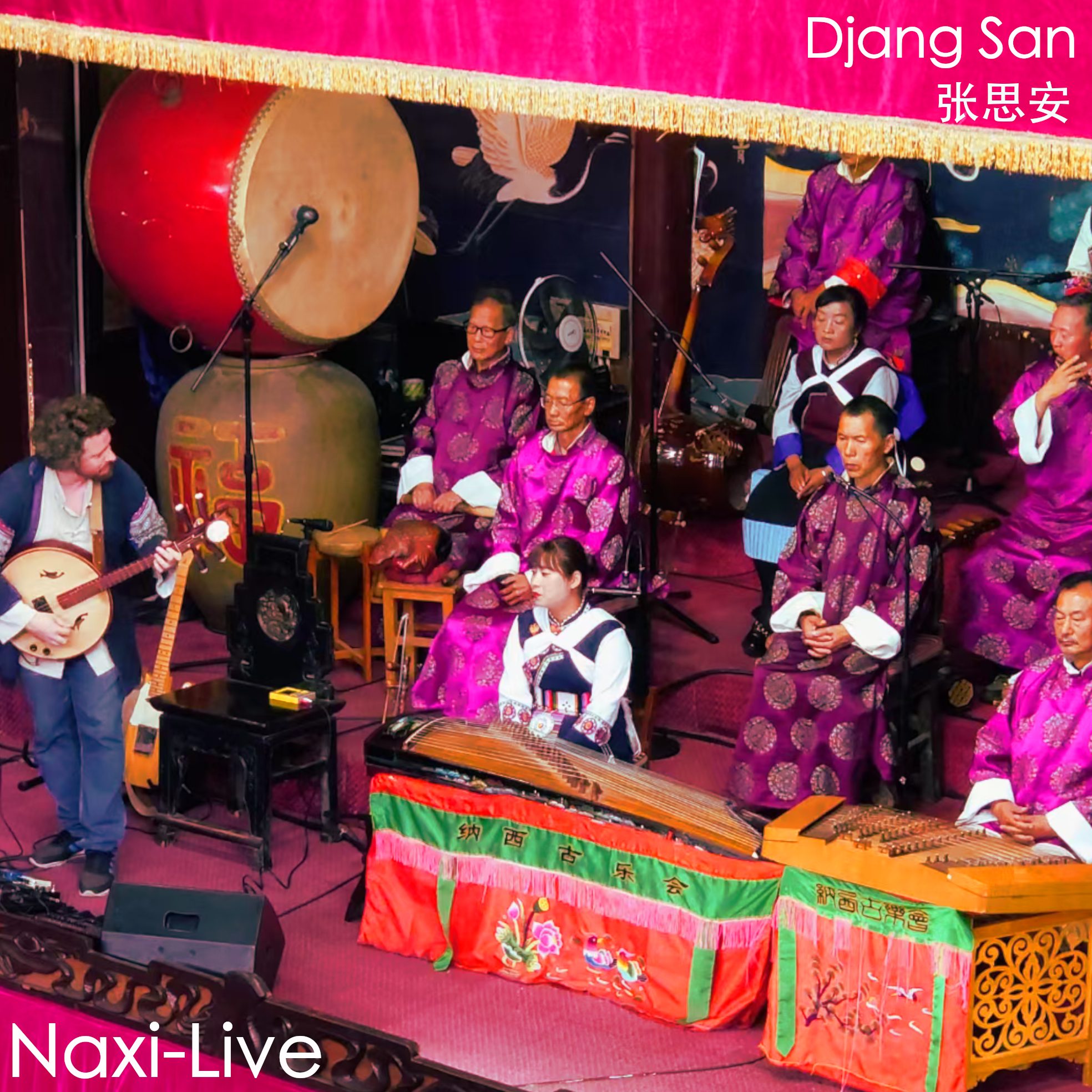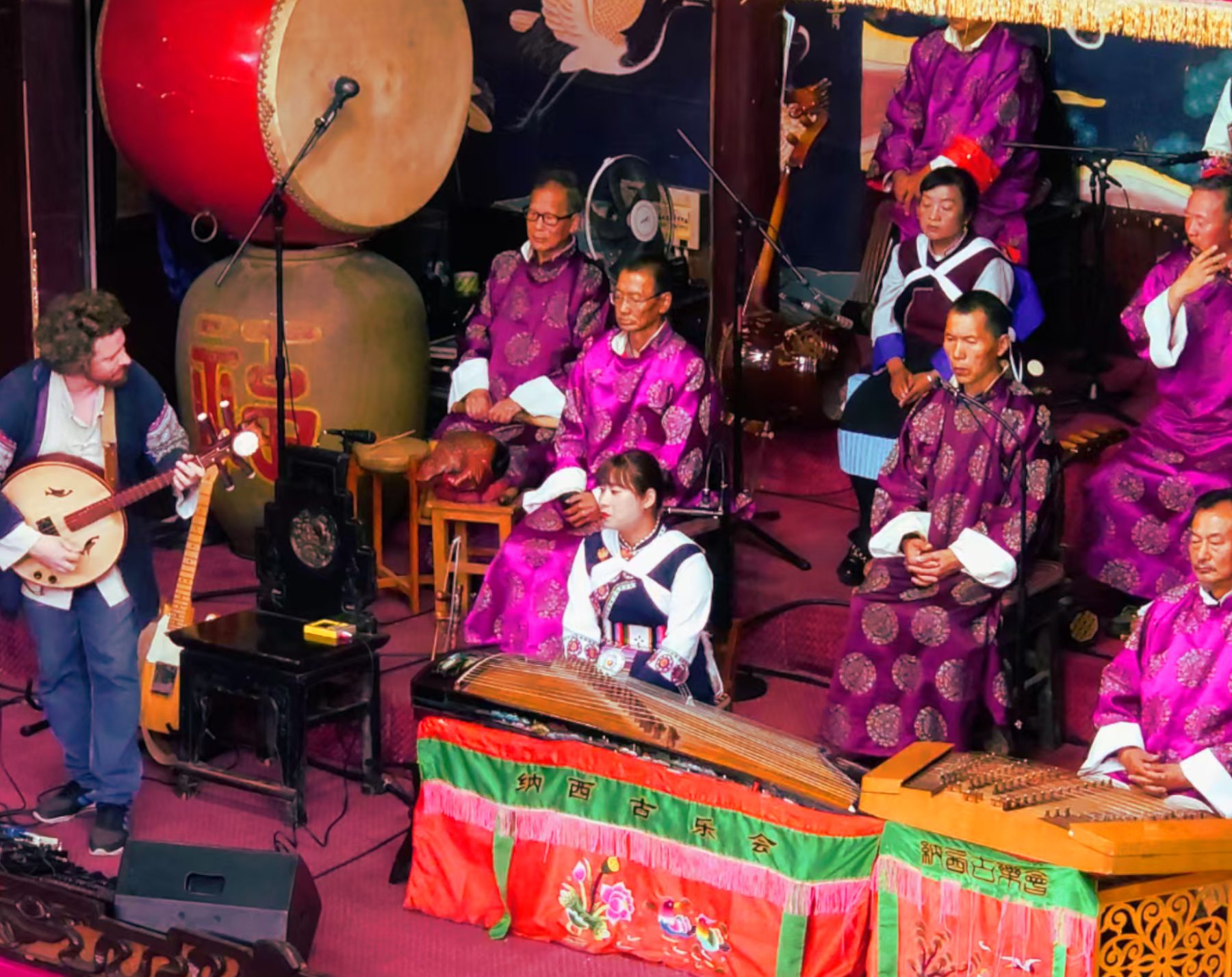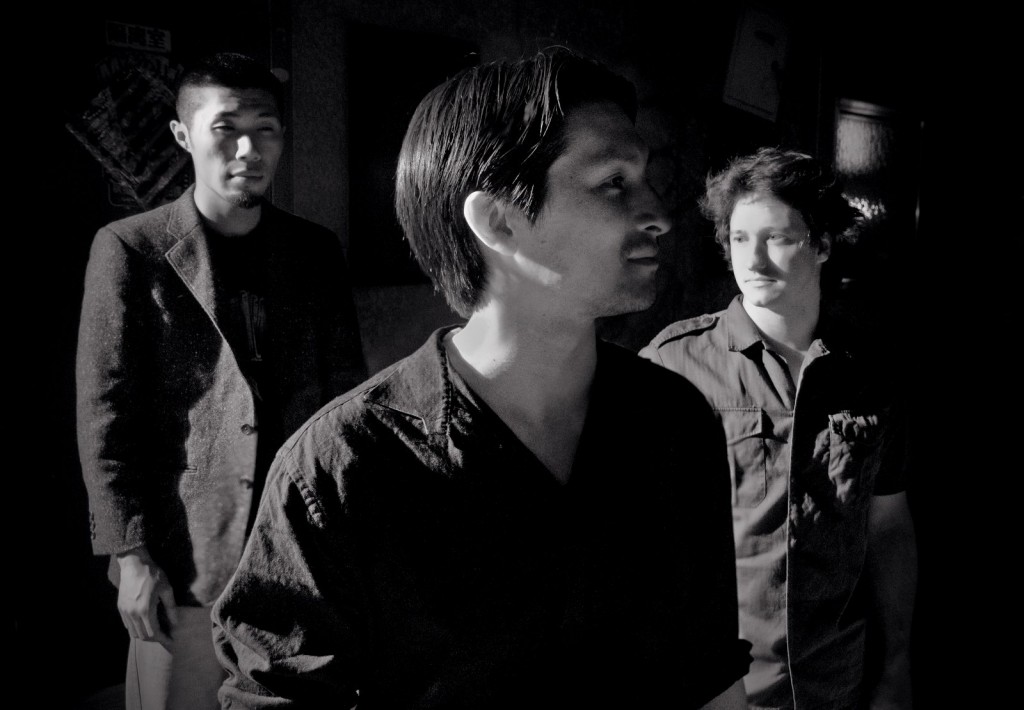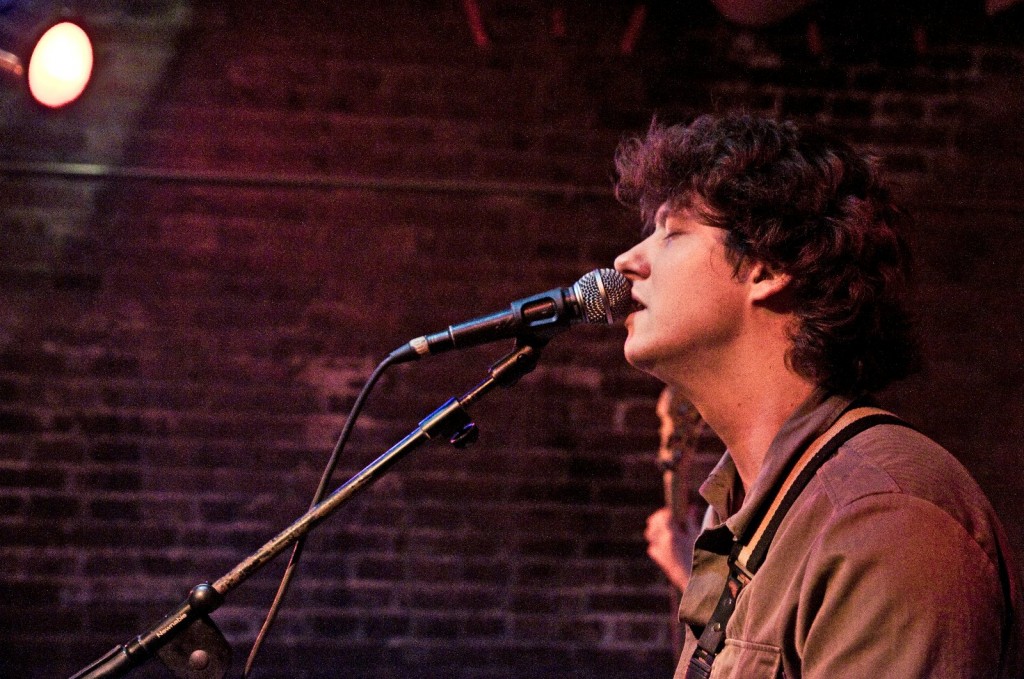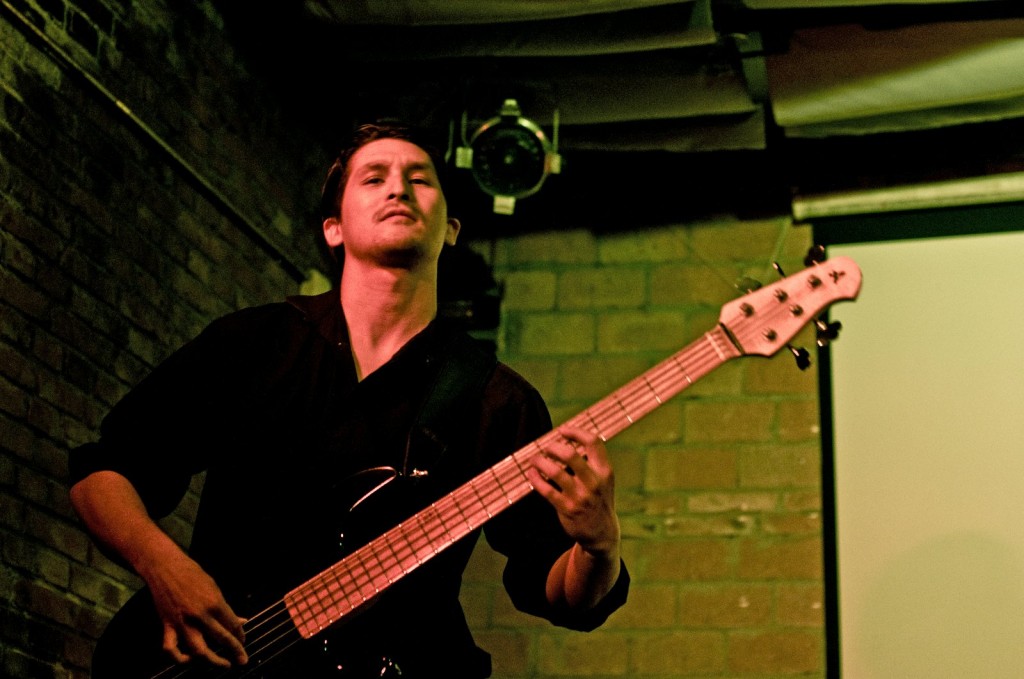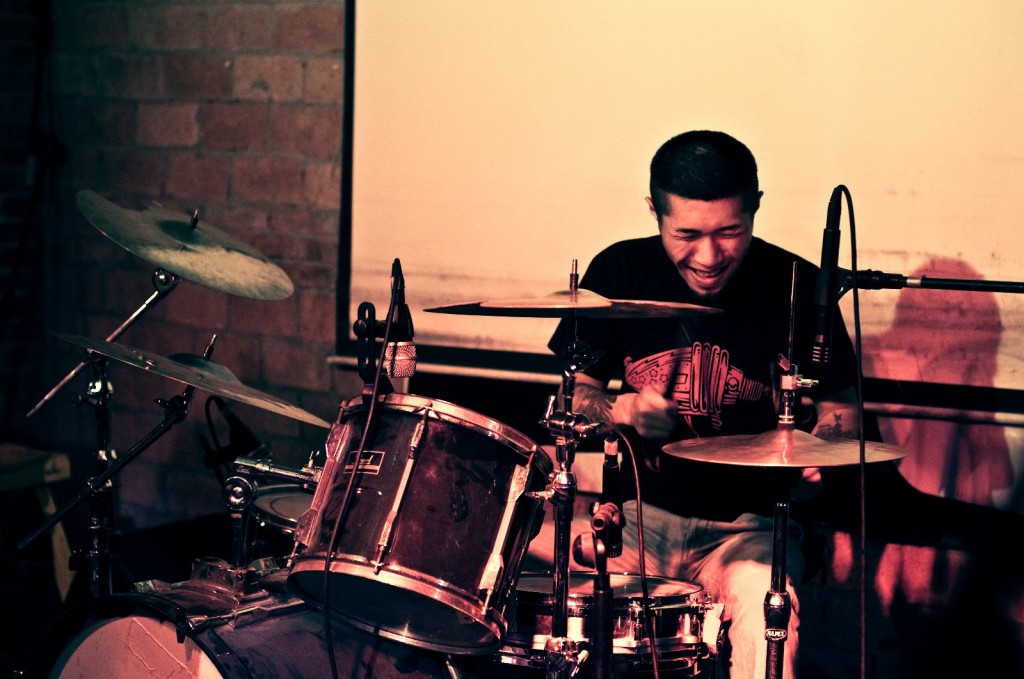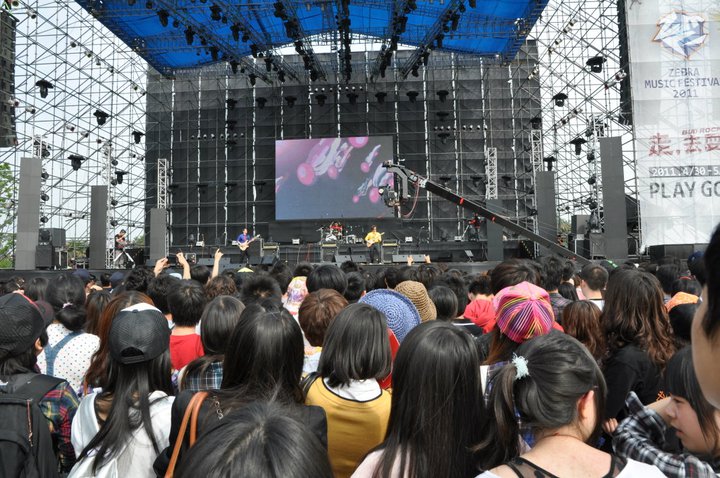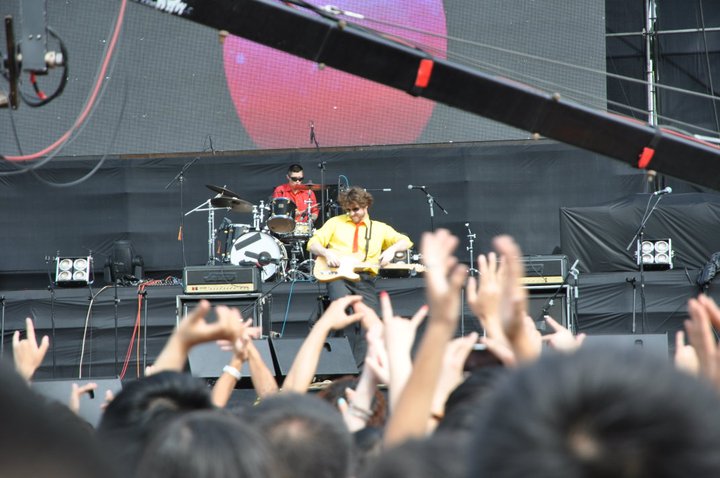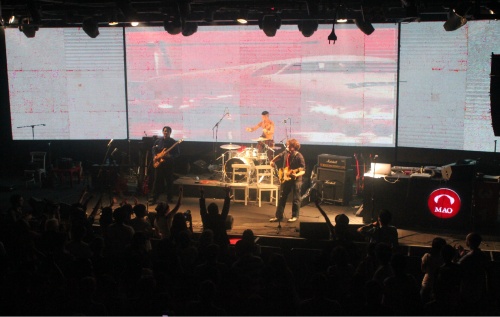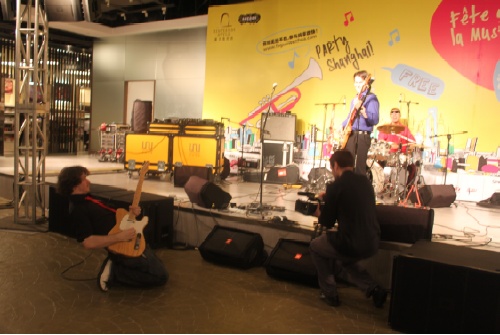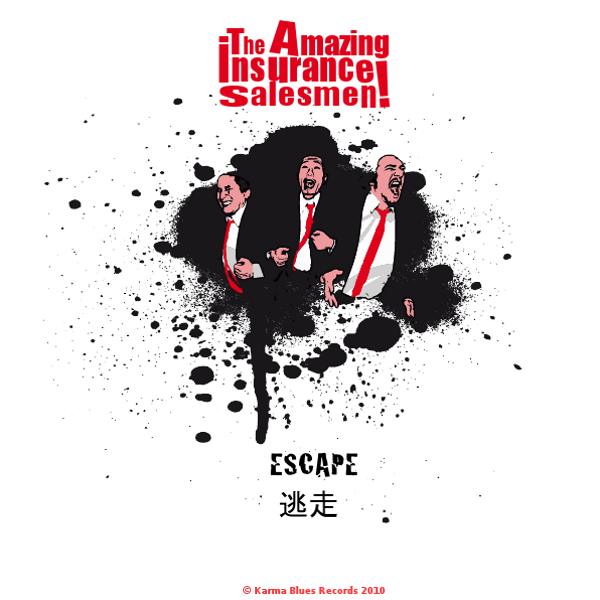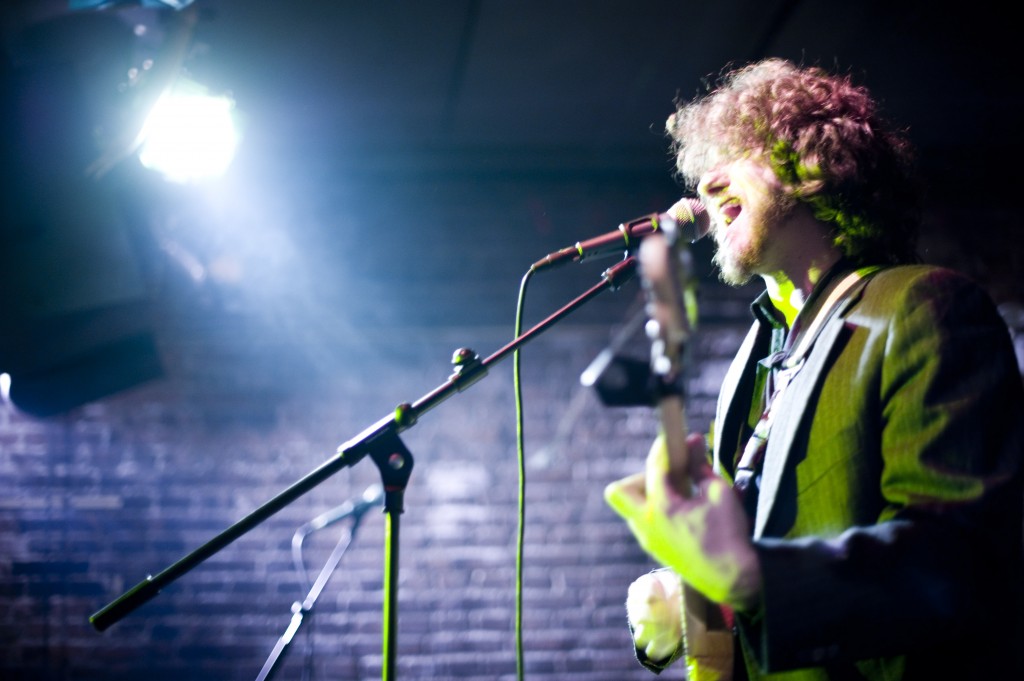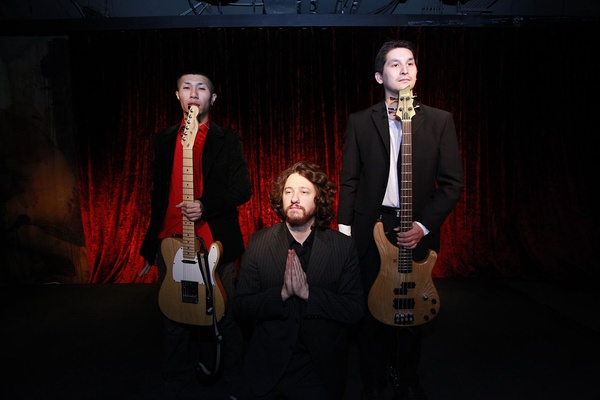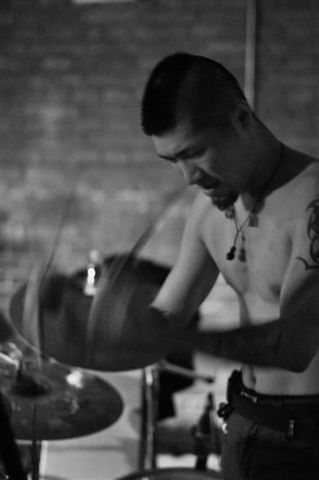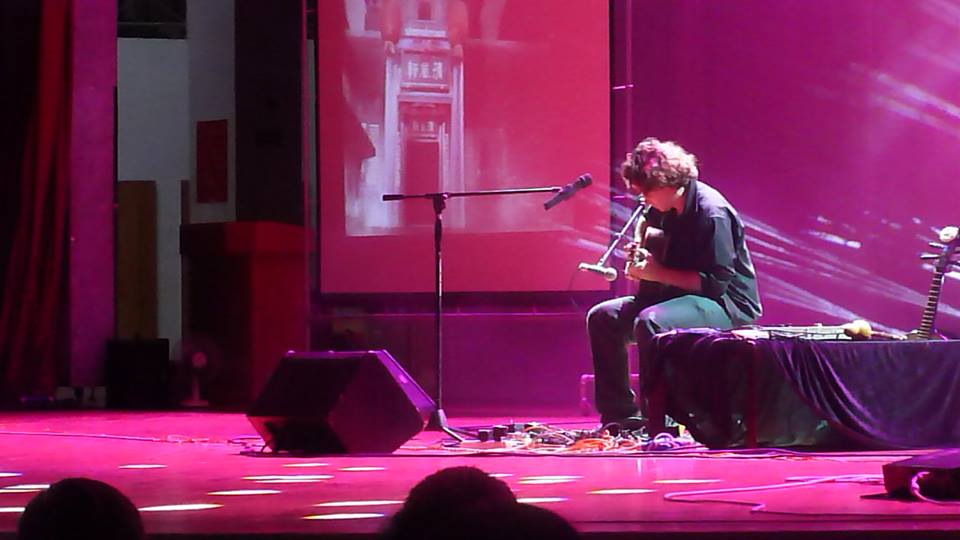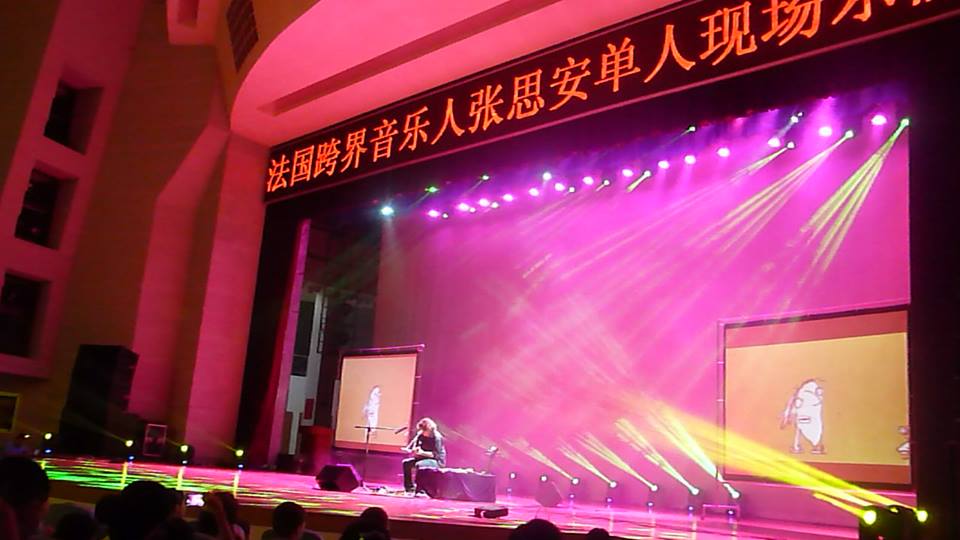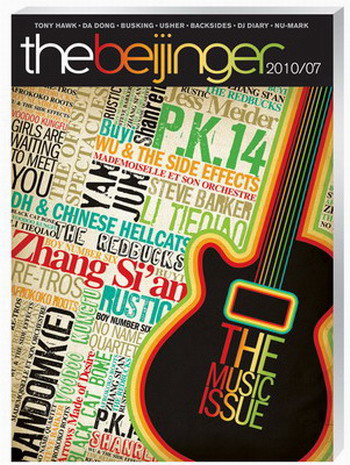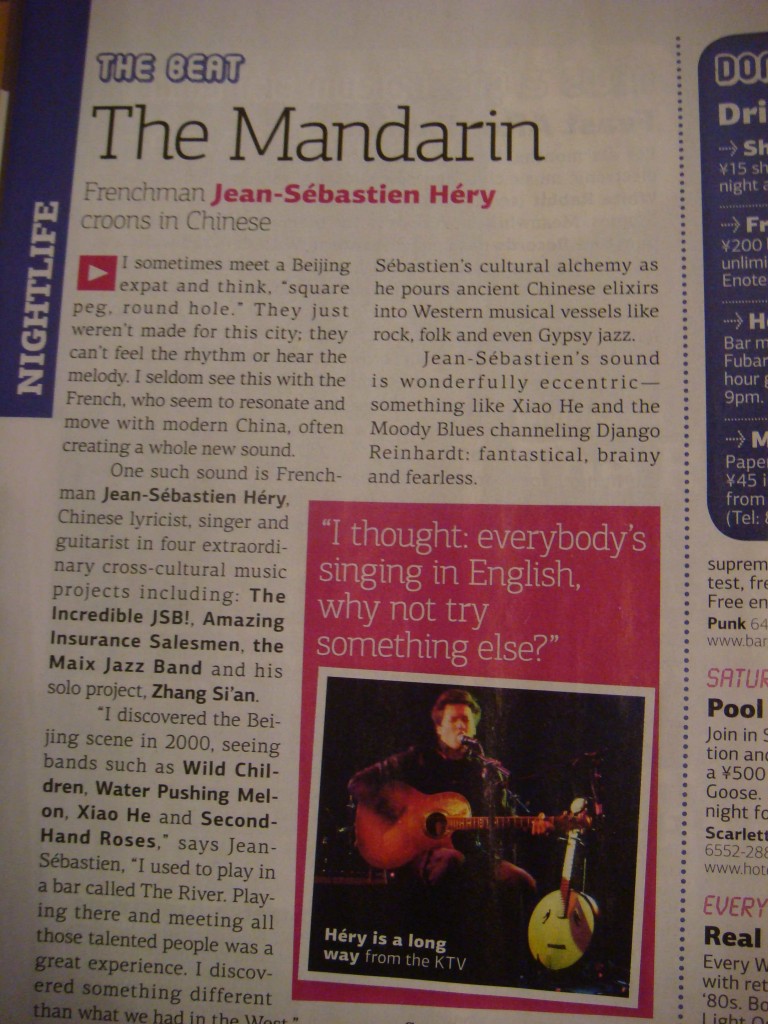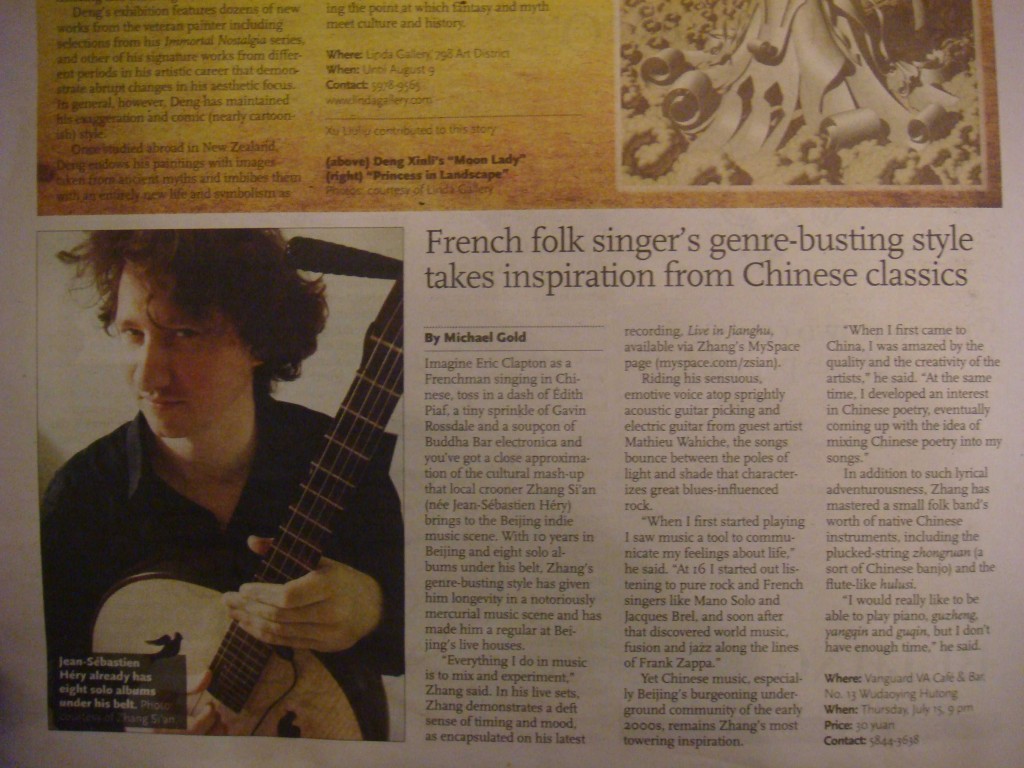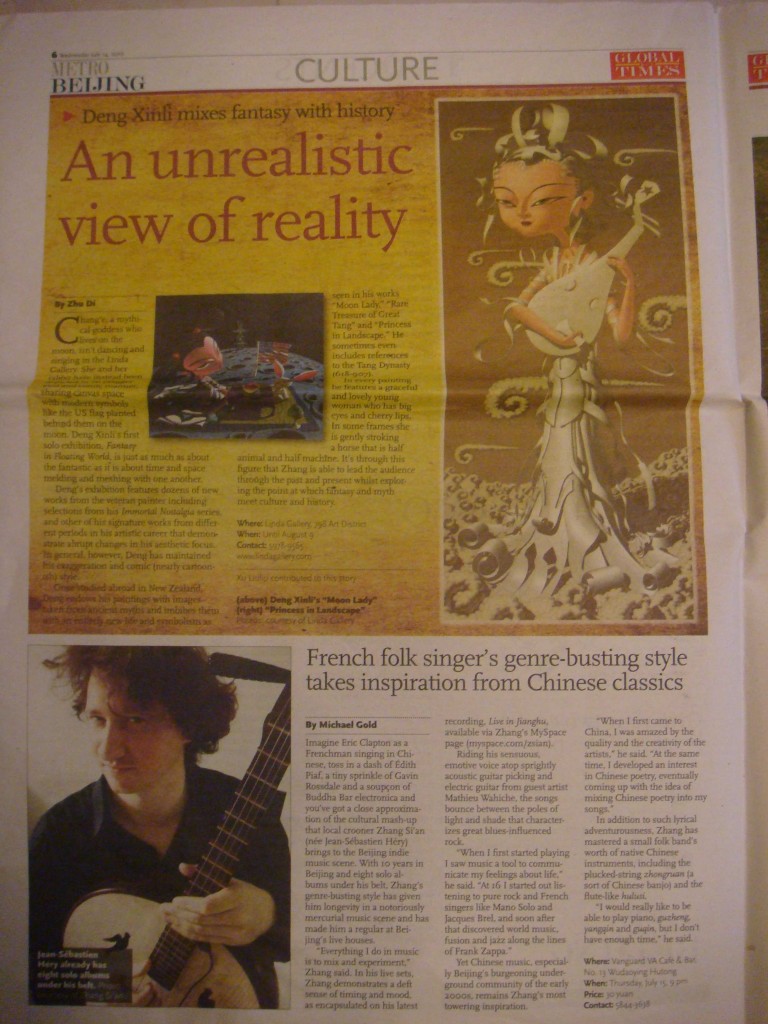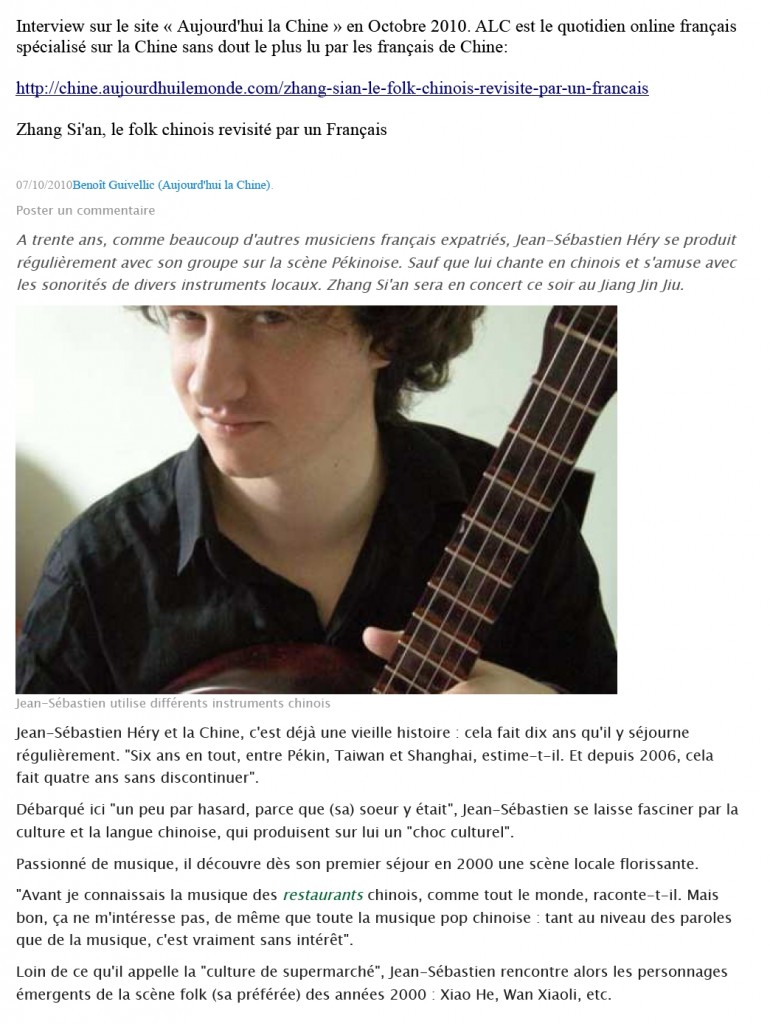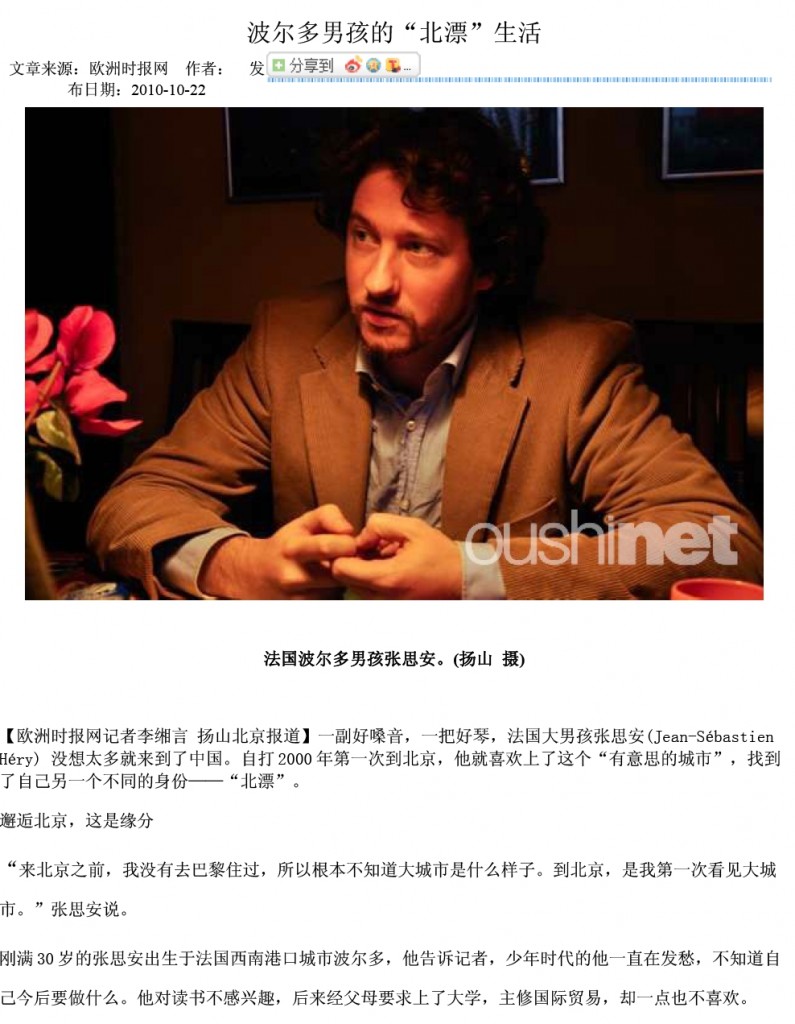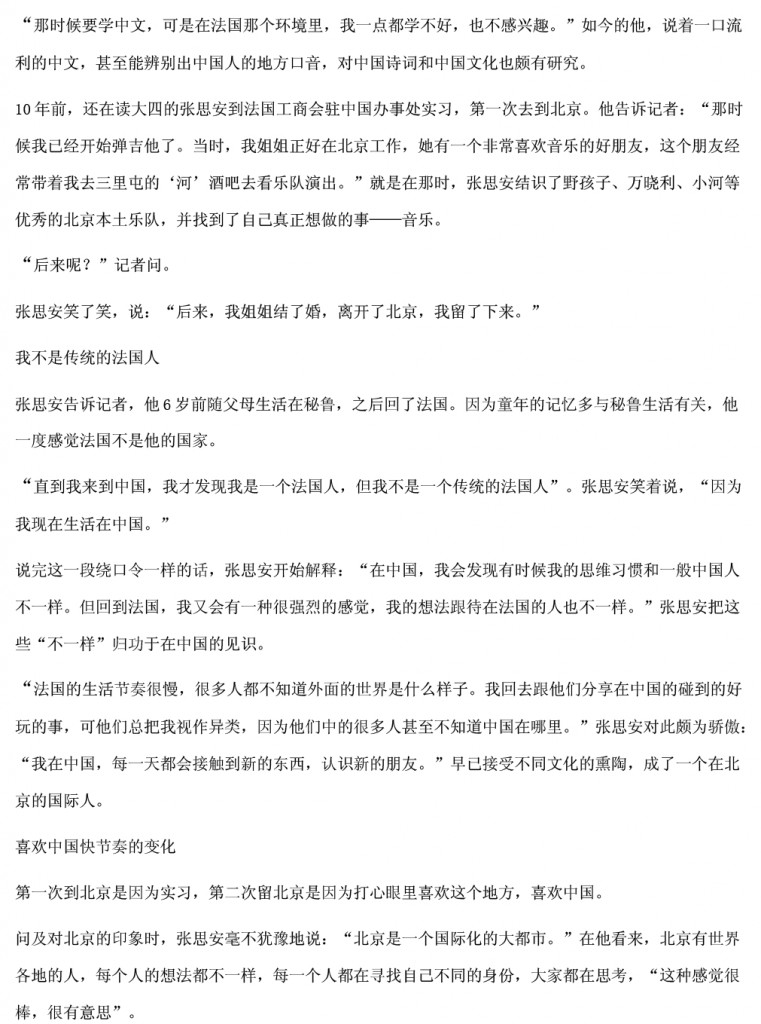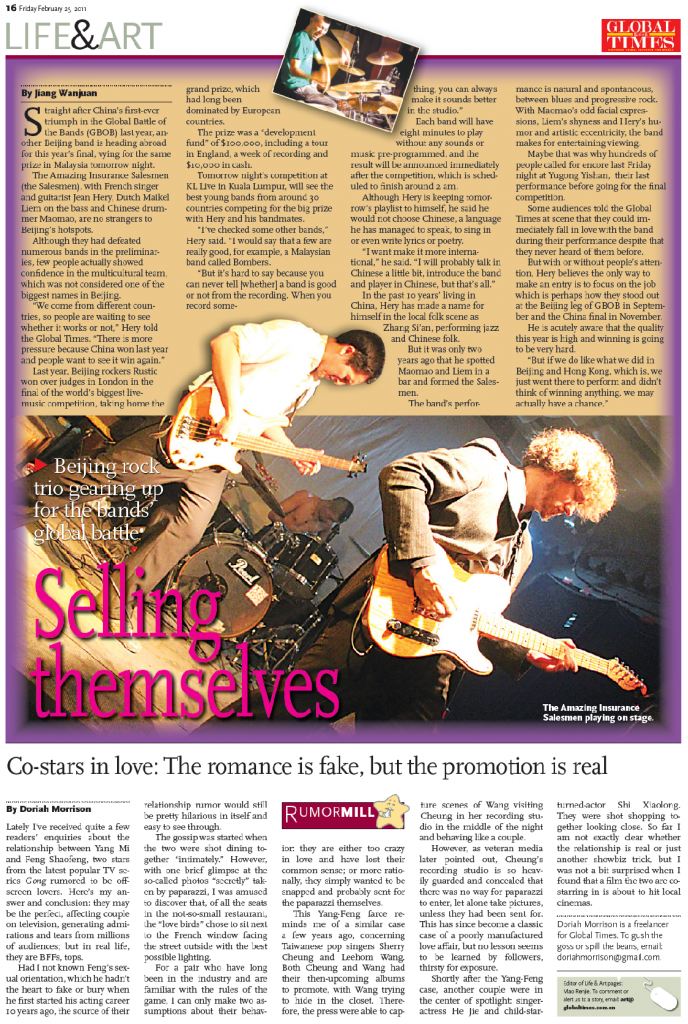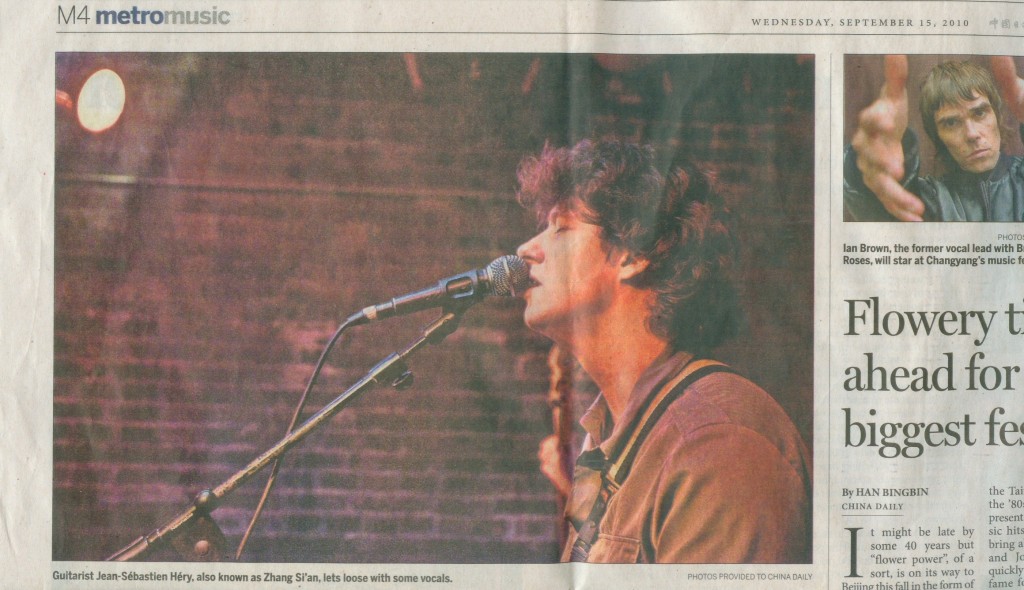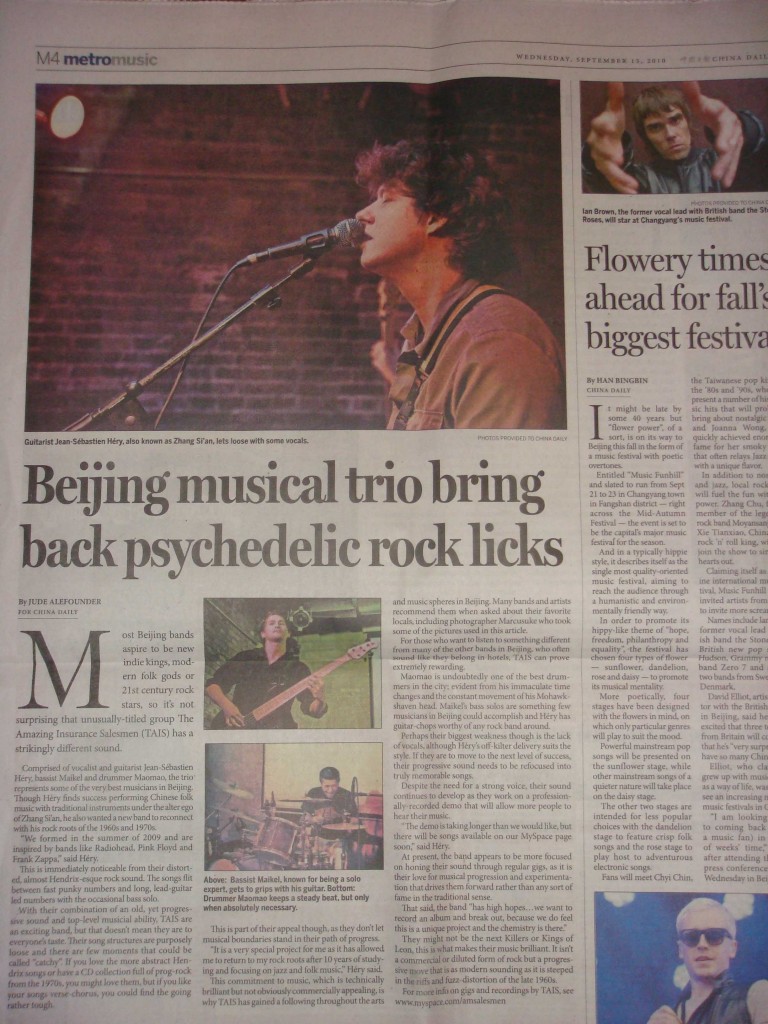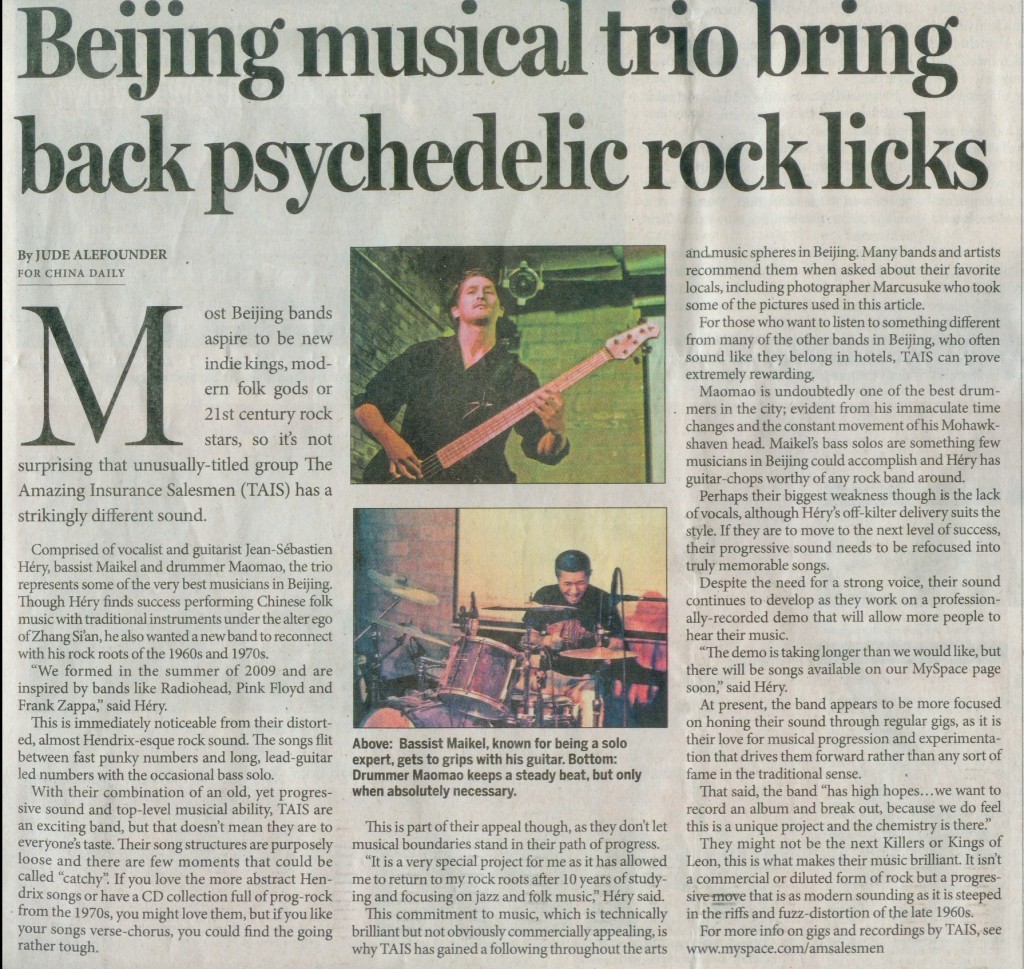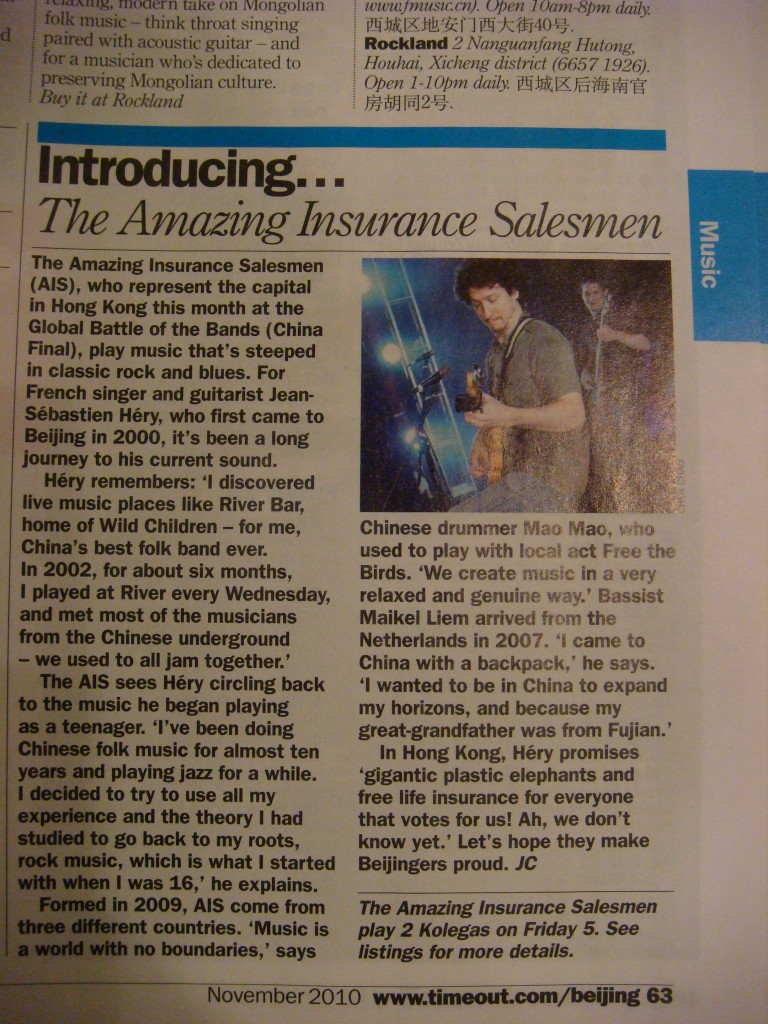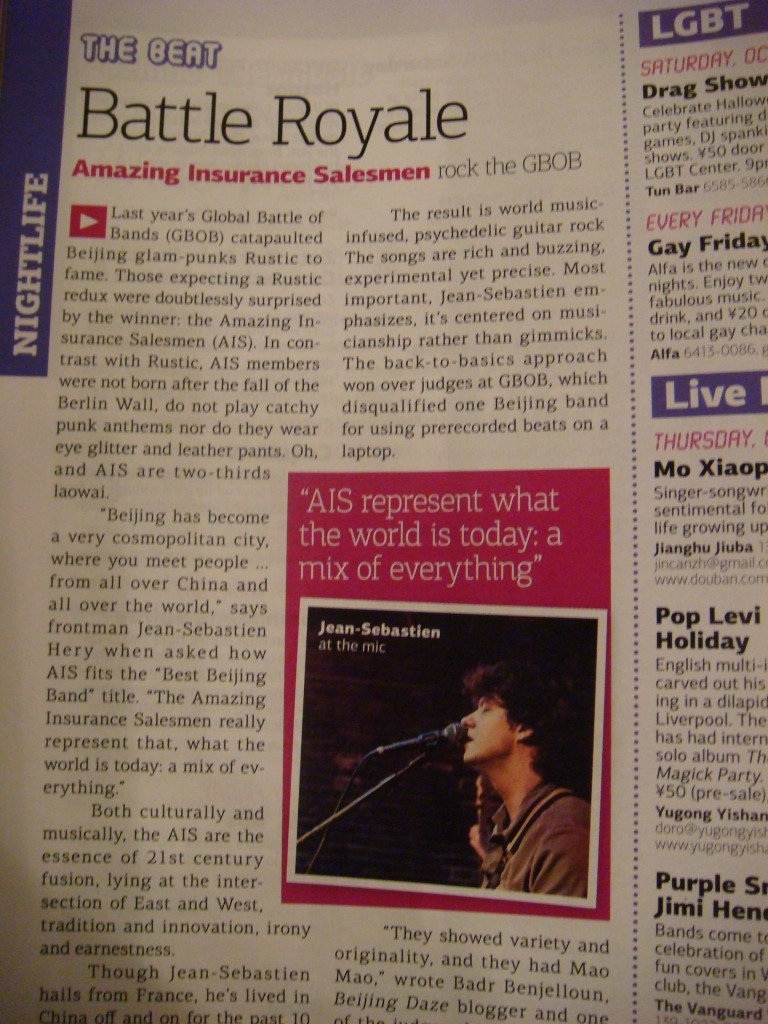
a documentary by CRI
by admin
Updated: February 17, 2021
China Radio International CRI:
http://english.cri.cn/11234/2013/10/28/2801s794633.htm

a documentary by global times
by admin
Updated: February 17, 2021
Filmed during the Beijing Underground Music Days in 2016.
Global Times:
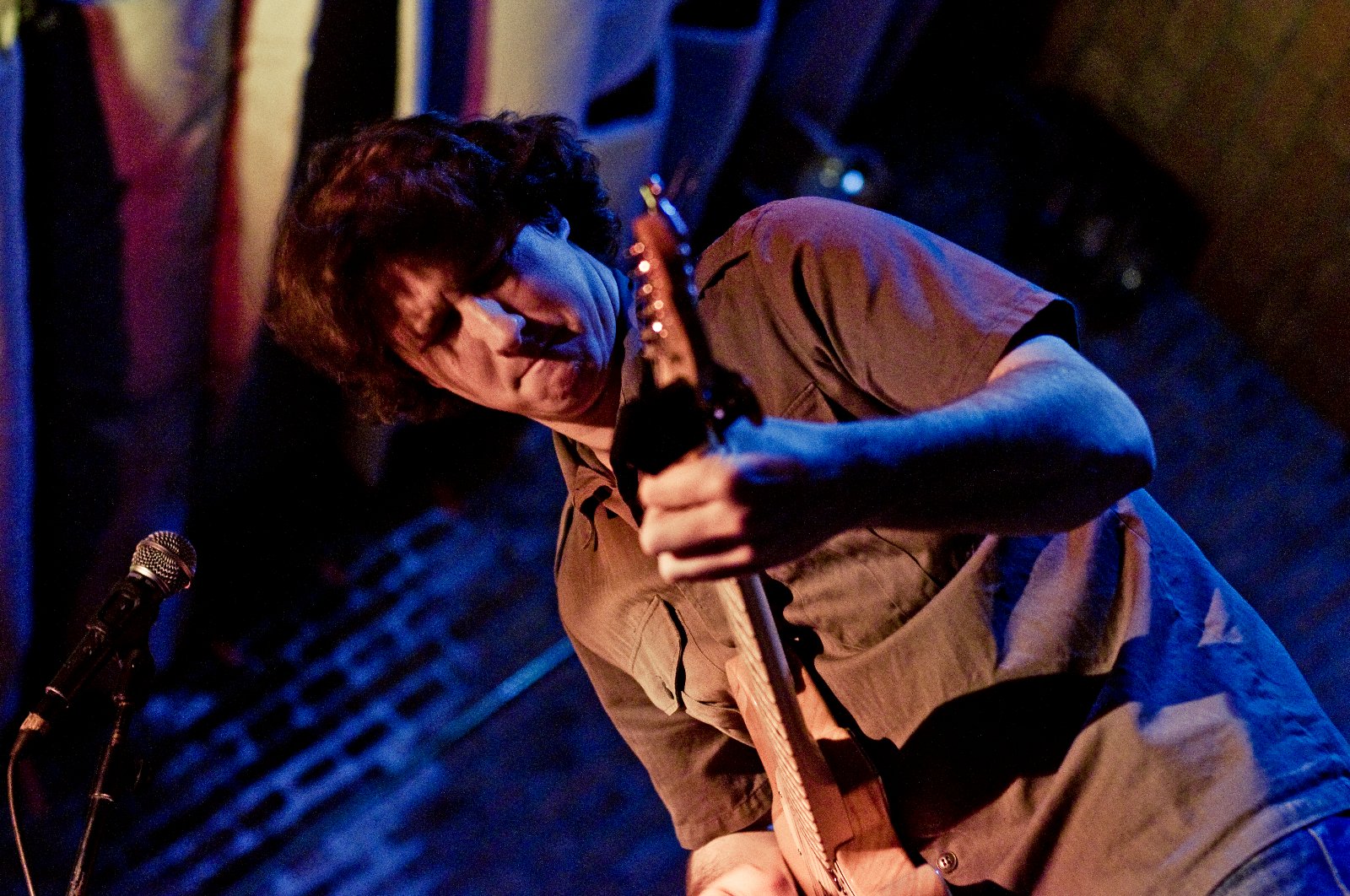
了不起的JSB!
by admin
Posted: February 17, 2021
2007年北京愚公移山演出
了不起的JSB! is a band that existed between 2006 and 2009. Originally initiated by Jean-Sébastien Héry, the band recorded one studio album and two live albums. This is the presentation the band had in those days:
了不起的JSB!成立于北京。
«了不起的JSB! »是一个三重奏。每个音乐家是一个大陆,不同的文化。“Ĵ”(Jean Sébastien Héry,张思安,法国),吉他手,歌手,作曲家。 “S”型(Sunny Dee,加纳(非洲))打击乐手。 “S”(Benny Oyama,纽约),吉他手和演奏家。
从2000年起,张思安游历大半个中国(北京,上海,兰州,新疆)。他了解了很多不同的音乐类型。中国经典诗词和他的想象力是他歌词灵感的主要来源。
他的歌词的灵感来自于中国古典诗词和自己的想象。
在二〇〇七年九月,Jean-Sébastien Héry(张思安)认识 纽约爵士吉它手Benny Oyama,Benny将介绍他从加纳天才打击乐手Sunny Dee。
乐队偶尔会跟别的乐手一起演出:贝瑟手Daniel Brushmann(纽约),萨克斯Scott Gumbiner(加州)中国敲击Ubuul Turstun(新疆)。
2007年11月,«了不起的JSB! »录了一张专辑。这张专辑是在北京的老舞酒吧录音的。这个咖啡室在南锣鼓巷街。这是一个9手歌道的专辑,一共34分钟。
2008年6月在北京传媒大学录了第二张专辑“中国制造”。
2009年出了第三张专辑“北京演唱会2”
买了不起的JSB! 的专辑!

The Incredible JSB!
by admin
Posted: February 17, 2021
Live au “Yugong Yishan” en 2007
The Incredible JSB! est un groupe qui a existé entre 2006 et 2009. Initié par Jean-Sébastien Héry, le groupe a enregistré un album studio et deux albums live. Ci-dessous la présentation du groupe pendant ces années:
« The Incredible JSB ! » est un groupe aux influences variées, qui présente un mélange musical allant du JAZZ a la musique Folk chinoise, en passant par le Blues et les rythmes africains. La musique de « The Incredible JSB ! » a aussi des accents de minorités ethniques chinoises puisque le groupe reprend certaines chansons folks du Nord-Est et du grand Ouest de la Chine. La plupart des morceaux sont composes et chantés en mandarin.
« The Incredible JSB ! » est composé de trois musiciens. Le groupe est souvent rejoint par un bassiste/guitariste et d’autres musiciens.
Apres plusieurs séjours en Chine et de nombreuses expériences musicales, Jean-Sébastien Héry (Zhang Si’an) décide d’aller plus loin en écrivant ses textes en mandarin. Ses textes s’inspirent de la poésie classique chinoise et de son imaginaire, mais aussi de la musique locale underground de Pékin.
C’est un 2000, lors d’un premier séjour dans l’empire du milieu, que Jean-Sébastien Héry (Zhang Si’an) fait la rencontre des artistes locaux de Pékin 野孩子 (Wild Children), 二手玫瑰 (Second Hand Roses), 小河 (Xiaohe), 布衣 (Buyi), 冷血动物 (Cold Blooded Animal),王娟 (Wang Juan), 万晓利 (Wan Xiaoli)…
Il gardera de ces rencontres un goût prononce pour une musique d’influence mondiale, allant au delà des frontières et des barrières culturelles.
En Novembre 2007, « The Incredible JSB ! » enregistre une première demo lors d’un concert au “Salud ! “. Cette demo comprend neufs morceaux, pour une duree de 34 minutes.
En Juin 2008, le groupe enregistre un album « Mad in China ».
En 2009, le groupe sort son deuxième album live “Live in Beijing 2”
Tous ces albums sont en écoute et disponibles sur amazon.com et itunes pour moins de 10 USD.
Le groupe se produit sur la scène pékinoise, au Yugong Yishan (愚公移山), au Salud !, mais aussi au Gingko, Ku 18, The Vineyard, The Boat, Jianghu (江湖), Jiangjinjiu (疆进酒), Dos Kolegas (两个好朋友), MAO Live etc…
—————-

保险超人乐队
by admin
Posted: February 17, 2021
The Amazing Insurance Salesmen 胜出2010年度中国 GBOB Global Battle of the Bands 北京区决赛!
[內地] The Amazing Insurance Salesmen 勝出 2010 GBOB 北京區決賽
《保险超人乐队》是一只由法国人张思安为主唱的乐队,乐队中还有来自荷兰贝斯手麦克(Maikel), 中国鼓手毛毛。这个乐队虽然已经解散了不过给中国地下音乐和摇滚乐有了很大的印象。
这支乐队演奏原创实验音乐和歌曲,受到 Radiohead, Pink Floyd, Red Hot Chili Peppers, Jimi Hendrix 等知名国际乐队的启发,其音乐形式融合爵士、布鲁斯、巴赛诺娃,混合,古典等风格。
乐队成立于2009<年夏天。在花了十年时间演奏民谣音乐(尤其是中国民谣)和爵士后,法国主唱张思安开始了寻找一条回归摇滚乐的道路。他邀请了北京两位最优秀的音乐人去共同创建一只新的实验摇滚乐队。
该乐队的音乐在北京独树一帜。其音乐风格介于 Blues 摇滚与吉他演奏曲(受即兴激进摇滚驱使。类似 David Gilmour 和 Carlos Santana 的音乐形式)之间。
这支乐队一直在北京最知名酒吧演出,如 2Kolegas, Mao Livehouse, 愚公移山, What酒吧, D22, 等。
乐队成员:
吉他手兼主唱:张思安(法国)(http://site.douban.com/zhangsian/)
贝斯:Maikel(荷兰)
鼓手:毛毛(中国)
买保险超人的专辑上bandcamp网站:
—————-
來自北京的樂隊再次勝出中國 GBOB 決賽
The Amazing Insurance Salesmen 勝出 2010 GBOB 北京區決賽!!!
Bitetone 搏客文章:
[內地] The Amazing Insurance Salesmen 勝出 2010 GBOB 北京區決賽
Music Dish China 文章:
http://www.mi2n.com/press.php3?press_nb=134450
City Weekend Beijing 文章:
GBOB article:
http://gbob.com/profiles/blogs/the-amazing-insurance-salesmen-1
Beijing Daze 搏客文章:
China Daily的采访
http://www.chinadaily.com.cn/life/2010-09/15/content_11305336.htm
豆瓣:
http://www.douban.com/artist/baoxianchaoren/
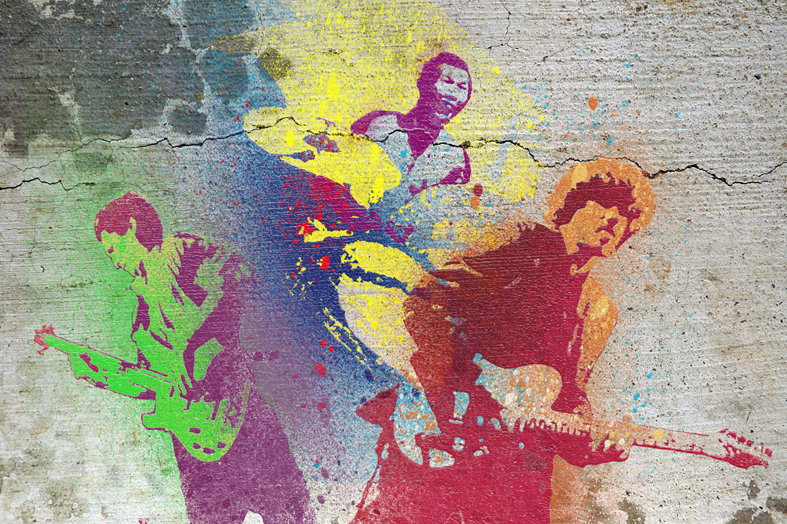
The AMAZING INSURANCE SALESMEN
by admin
Posted: February 17, 2021
The AIS remportent le GBOB à en Chine et à Hong Kong ! (contre environ 100 groupes de toute la Chine)
Lisez plus d’informations à ce sujet ici:
Beijing Wins China Global Battle Of The Bands Final 2010 against 81 other bands (on Music Industry News network)
En 2011, le groupe a joué en Chine, à Hong Kong et en Malaisie dans des festivals incluant le Zebra music festival, où The AIS a joué devant environ 6000 personnes, jouant le même jour et sur la même scène (scène principale) que la Super Star de Hong Kong Edison Chen.
Le groupe au festival de la “Fête de la musique”, organisé par L’ambassade de France en Chine en 2011 dans les villes de Wuhan et Shanghai.
Le “Beijing Haidian Park Festival” et le “Beijing Nanluoguxiang Festival” sont quelques uns des festivals auquel le groupe a participé.
“Escape”, l’album de
The Amazing Insurance Salesmen est en vente sur itunes
( for sale on itunes.)
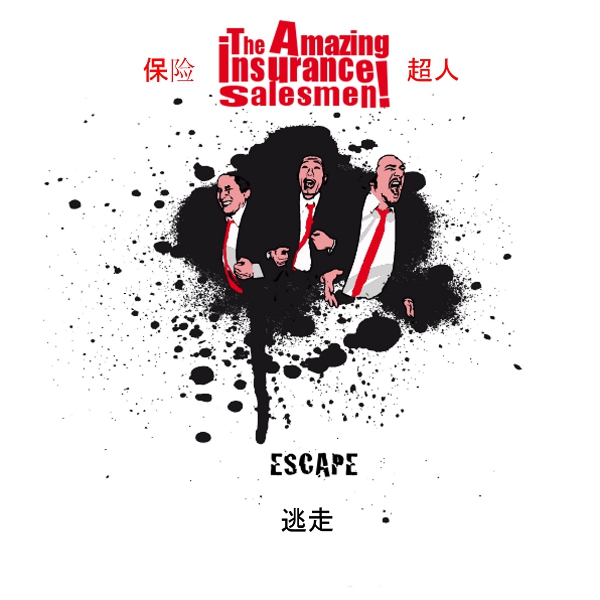
A propos de “The Amazing Insurance Salesmen”:
The Amazing Insurance Salesmen est un groupe qui a été fondé par Jean-Sébastien Héry (Zhang Si’an, Djang San, JSB).
Le groupe s’est formé en 2009, quand Jean-Sébastien Héry cherché à revenir à ses racines musicales, le rock. et ceci après 10 ans de musique folk.
Il a alors demandé à deux des musiciens de Pékin de le joindre.
Le groupe jouait de la musique progressive expérimentale et des chansons inspirées par des groupes tels que Radiohead, Pink Floyd, Red Hot Chili Peppers, Jimi Hendrix et des genres musicaux comme le jazz, le blues, le bossa nova, la fusion, la musique classique, etc ..
La musique du groupe était tout à fait unique. Elle variait entre de courtes chansons punk-rock mélodique et de longs solos de guitare instrumentale et d’improvisations de rock progressif à la David Gilmour (Pink Floyd).
Le groupe a joué dans tous les lieux culturels de Chine comme 2Kolegas, Mao livehouse, Yugongyishan, What Bar, D22, etc.
Le groupe s’est dissous en 2014.
—————————————–
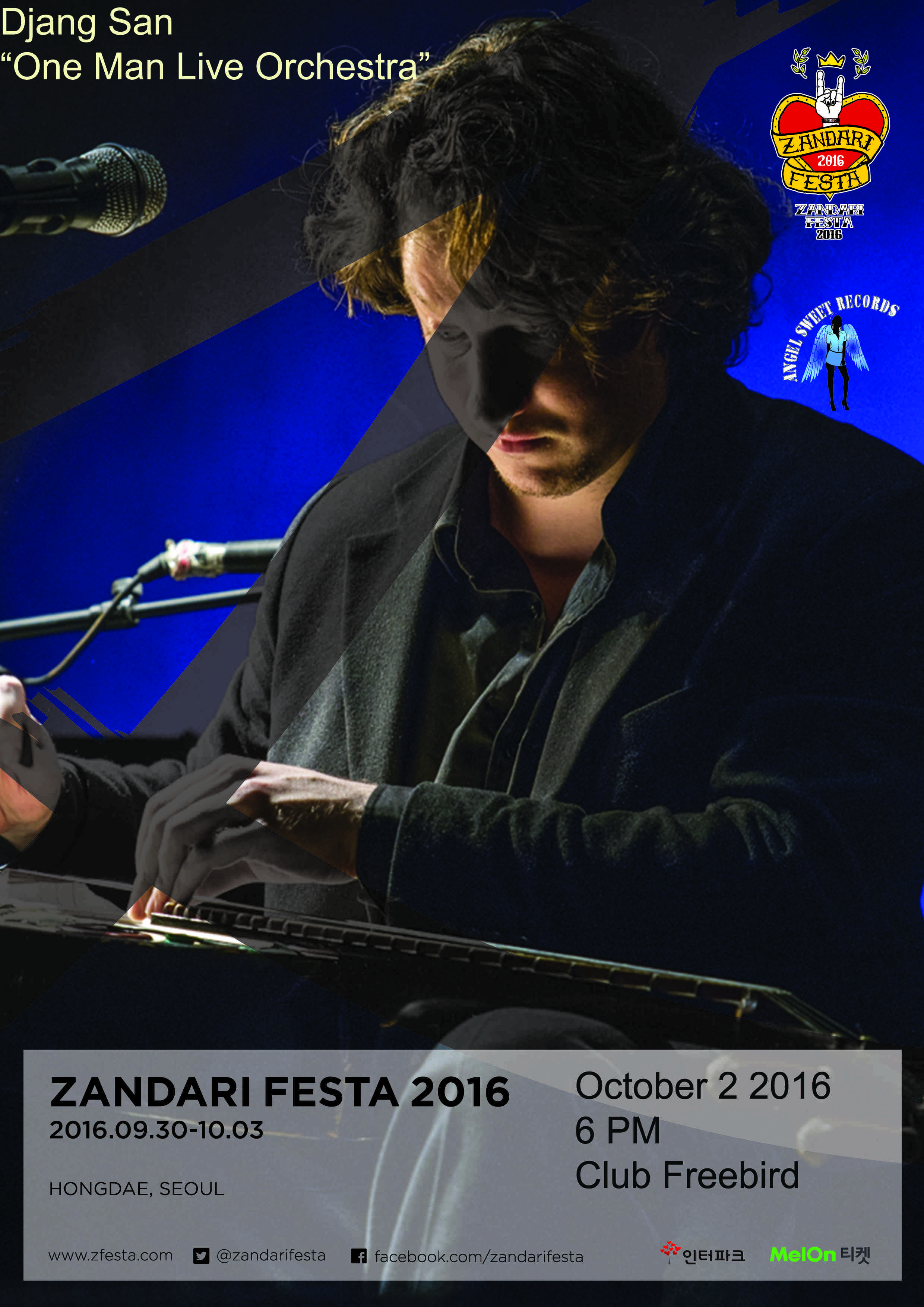
One Man Live Orchestra
by admin
Posted: February 17, 2021
En 2000, lorsqu’il vient en Chine pour la première fois, Djang San écrit son premier morceau en chinois. De nombreux albums suivront.
En 2010, il remporte le “Global Battle of the Bands” en Chine et à Hong Kong avec son groue de rock “The Amazing Insurance Salesmen”.
Il lancera plus tard une nouvelle direction, avec un projet totalement électro et expérimental.
De nombreux enregistrements de ce projet ont été produits et publiés.
Le “One Man Live Orchestra” est un projet solo de Djang San dans lequel il joue plusieurs instruments sur scène . ce projet tourne régulièrement en Chine mais aussi en Corée du Sud et au Japon.
Ce projet solo a participé à de nombreux festivals tels que le Midi Festival de Shenzhen, le Zandari Festa à Séoul, le Hainan International music festival à Haikou (Chine), le COART festival à Lijiang (Yunnan, Chine), les “X-nights” (Beijing), le festival Croisements (Institut Français), le WMDF (Japan) etc.
Djang San joue régulièrement en tant que “One Man Band Orchestra” partout en Chine.
La musique de ce projet est basée sur des créations de boucles musicales de zhongruan et pipa électrique mais Djang San y intègre parfois aussi des boîtes à rythmes, des claviers, des mini synthétiseurs et des guitares
Des vidéos filmées et montées un peu partout dans le monde par Djang San lors de ses tournées sont toujours présentent pendant les concerts et accompagnent les concerts de ce globe-trotters musical.
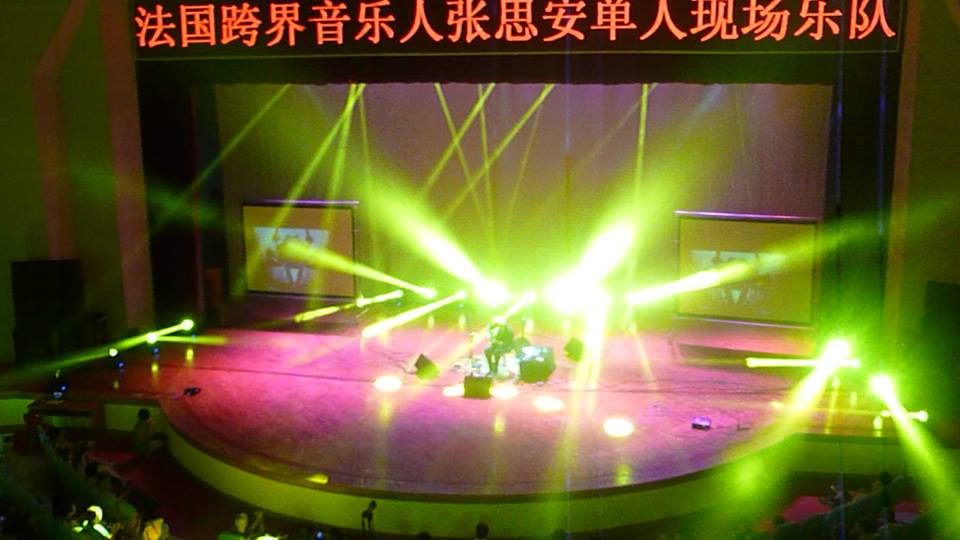
张思安单人现场乐队
by admin
Updated: February 17, 2021
张思安现在的电子音乐是中国民谣,爵士乐,摇滚乐和电子乐的一种混合音乐.
在舞台上张思安演奏各种乐器和电子设备;
张思安单人乐队已经在中国,韩国和日本巡演了几次。
张思安的单人乐队参加过迷笛音乐节、海南海口国际青年音乐节、夏至音乐节、COART音乐节、X-Nights音乐节、中法文化之春Croisement、夏至音乐日、韩国Zandari和首尔音乐周Seoul Music Week等音乐节及文化项目。
他有时候也会加上键盘和效果器的运用,并且在演出同时放置大屏幕播放发相关视频。
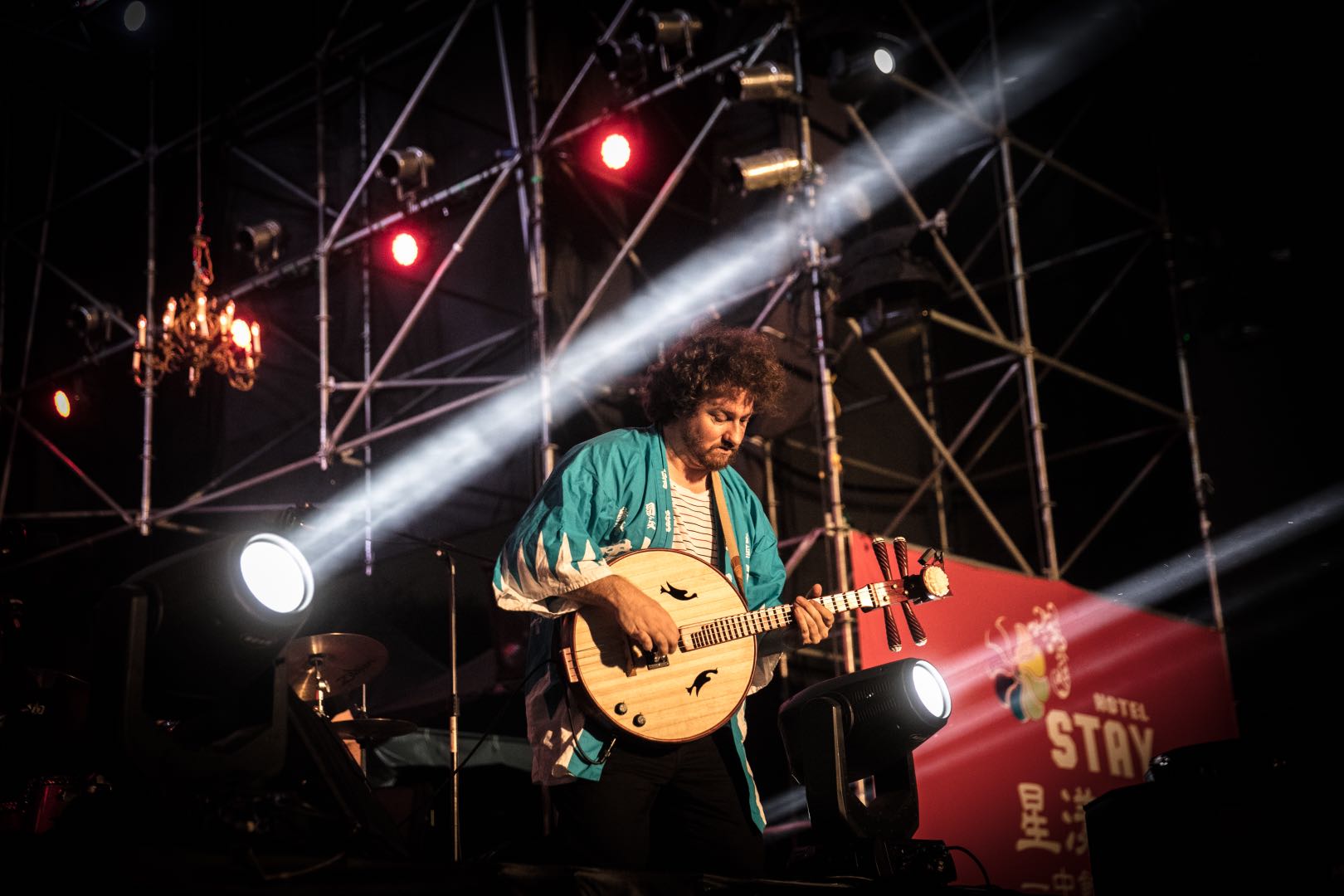
A few other interviews
by admin
Updated: February 17, 2021

This is a special page of some of the articles about Djang San, Djang San + Band, Zhang Si’an, The Amazing Insurance Salesmen, and other projects:
You can find many more infos and articles on “Djang San”, “Zhang Si’an” , “Djang San + Band” , “The Amazing Insurance Salesmen” and Bob Dupont & The Outstanding Vegan Bankers by just typing those names in Google !
Djang San appears regularly in the press and TV to talk about his music or about his festival “The Beijing Underground Music Days”.
https://lepetitjournal.com/pekin/a-voir-a-faire/djang-san-un-chercheur-dor-musical-pekin-34582
The Modern Musical Magi Of Beijing
Djang San will be performing at Yugong Yishan on November 26 as part of the Dong Dong Music Festival and Convention
http://www.musicdish.com/mag/?id=13659
When I think of Djang San (Zhang Si’an) aka Jean-Sébastien Henry, the first image is of a one-man band. Add to that image 8 hands instead of two. One hand holds a trilingual book, another grasps a bizarre instrument unknown to mankind, the third grips a miniature bridge, the forth supports an electrified piece of tofu, the fifth carries recording device, the sixth strokes his chin existentially and the remaining two hands, well they are just playing his zhongruan (a traditional Chinese plucked instrument) or strumming a guitar, of course.
This modern musical magi has his hand on a lot of strings, his head in many an esoteric thought and his eyes fixed firmly on the road of life. We met up recently to chat about his most recent musical and mental adventures.
What is the point of it all?
As a young idealist, after first coming to China in 2000, I wanted to create a bridge between cultures, I wanted to show it was possible to go beyond cultures, educational backgrounds, political issues, also beyond the idea of races. I don’t believe in the idea of races, there’s only one, the human race.
In France the education most RECEIVE is about being all equal, so it doesn’t matter where you are from and what’s the color of your skin, we are all equal, on paper at least, which already is a good starting point I think.
is about being all equal, so it doesn’t matter where you are from and what’s the color of your skin, we are all equal, on paper at least, which already is a good starting point I think.
My father was born in Spain and I grew up in Peru until the age of 6 or 7. I received some influence from Spanish and South American culture.
When in France I grew up surrounded by people from all regions of the world, people who had to adapt to the French culture, not always the easiest thing to do.
It wasn’t hard for me to adapt to France, but I have always felt a little bit on the outside of the mainstrean because I had been exposed to different cultures at a young age. I have known from a young age we think and behave in different ways because the place and society we grow up in has a strong influence on everyone of us. I believe our PERSONALITIES are shaped by our parents, our environment, our culture, our school, what’s on TV, and what we know of our history.
are shaped by our parents, our environment, our culture, our school, what’s on TV, and what we know of our history.
So here is the point of it all, showing the possibility of going beyond boundaries, building bridges between cultures, opening people’s minds both in Asia and in the West.
I chose China in 2000 because I saw the opportunity of creating something new. Beijing was also very cheap back then, so I thought I would easily have time to do music. When I first came to China, I felt people here were very open minded and very curious about the world, there was a need to know the outside world, a very strong thirst for understanding. That was also a strong pull for me to keep on coming back here. I think it all changed after 2008, after the FINANCIAL CRISIS in the U.S, it’s as if all of a sudden Chinese people had lost faith in foreigners, as if we were not that interesting after all.
in the U.S, it’s as if all of a sudden Chinese people had lost faith in foreigners, as if we were not that interesting after all.
As a foreign artist in Beijing I am both an observer and an actor. I will never be from here, I can speak Chinese, write it and read it, but my face betrays me.
It is interesting to be an observer. As I speak Chinese, I understand the conversations in the street, I know what people talk about in the subway and the bus, I’m also used to people’s body language here, so there’s a lot I understand now without even having to listen and speak.
I think I have become sort of a bridge between cultures myself, and I think my music and my thoughts on life through music are an echo of all this.
I wanted to call the latest release with Djang San + Band “Walls and bridges”, because I think it relfects the idea of this album. Unfortunately, I checked on google and found out the name had been used by John Lennon.
I thought of a new name, “11 brides”, each of the eleven songs being a bridge on their own. The band wasn’t too fond of that new name so I joked and said “let’s call it electric tofu”, Carlo and Steno loved the idea, I changed the name to “Tofu électrique”, just to push the absurdity a bit further.
I also consider myself an existentialist, I deeply believe in the absurdity of life.
Why do you think anyone should listen to what you have to say or what you have to play? what makes you special? is it your ego?
I consider my music as a result of my experiences in life, it is often about more than just the music, it’s a reflection on a lot of different things. It is up to the listener to read between the lines or not.
People should listen to the music just to listen to something different, there are other things in music besides MTV or what Rolling Stones magazine or some of these other medias talk about.
Why would people listen to what I say ? No one has to, but I hope to bring a different vision of life and culture. The idea is it is possible to do something different.
When I play in front of audiences that are all Chinese, or even when the room is full of foreigners, all the people get it, like it, dance to it, or travel into their imaginations. This shows it is possible to do music that is not standard pop and move people with it. It also shows you don’t have to be naked on stage to get people’s attention. When I see the video clips of Nicky Minaj, Miley Cyrus and the likes, I think their image is everything, who cares about what you sing as long as you show your a$$ right ?
My music mixes a lot of different styles and ideas. I don’t think there’s a limit to what is possible, I don’t like boundaries, I don’t want to feel like a prisoner, I want to feel free.
What makes me special? I don’t know, am I special? Who am I to judge myself? 🙂
My ego? What ego? Aha.
If you had a time machine, when would you go?
If I had a time machine, I would go back to my childhood and tell young me to do as much music as possible as soon as possible and not waste time on anything else.
I would also go back to before the big bang and witness the beginning of the universe. I would finally know where we come from, maybe meet god, and end all wars before they even begin.
I would also travel to the future from now, but I might do that before I travel to the past and meet god and change the future, are you following?
An option would be to go live in the sixties, but it seems like a very chaotic time, very much like now actually.
On your album cover you plug some electrical stuff into a piece of tofu? Explain.
The electrification of the zhongruan and the name of the album “Tofu électrique” brought questions about the album cover, how should it be? I bought a few blocks of tofu in the nearest supermarket and started to experiment with the idea of an electric tofu. The result was pretty ugly so at the end I changed the cover quite a bit, to make it something abstract. The title is sarcastic, and absurd, everything is electric and electronic nowadays. Electrifying my zhongruan to bring it to the 21st century is simple. I’m sure it’s possible to solidify a piece of tofu and electrify it to make it some sort of new guitar, I’m sure it will sound great. Find the album here at:https://djangsan.bandcamp.com/album/tofu-electrique
Explain this Theory of Intelligence thing. Where’d it come from?
I got the idea of the theory intelligence a few years ago, then I developed it little by little.
You can read it all here on my website www.zhangsian.com
In the last three years I have read about the life of pioneers and inventors like Ambroise Paré, Galileo, Pythagoras, Da Vinci and many more. I realized that in order to make progress and discover things, all these people had followed their instincts and based a lot of their work on logic and observation.
I have always been a very sensitive PERSON . This sensitivity has pushed me to do music, as music became a tool to communicate in another way in order to exteriorize emotions I often feel I can’t express with words.
. This sensitivity has pushed me to do music, as music became a tool to communicate in another way in order to exteriorize emotions I often feel I can’t express with words.
The theory of Intelligence is a theory that comes out of pure feeling, observation and logic. It comes from my perception of the world, and it’s a description of that perception.
I believe that as people, our understanding of reality is limited to our senses. We had to develop systems to quantify and analyze nature, systems to help us as interfaces to translate natural phenomenon. We have pushed those systems so far and discovered so much that we are now able to use those tools to transform reality, and even try to understand what goes beyond our senses.
I wanted to come back to the origins of science and philosophy, when everything was about observation, and create a system out of it.
Music is also a system, the organization of sounds. In ancient Greece, philosophers were also mathematicians and musicians.
In order to get closer to that idea, I decided to publish the theory of intelligence as both an album and a text. It’s a concept album; people have to listen to the music as they read the theory. (https://djangsan.bandcamp.com/album/a-theory-of-intelligence)
You have produced an amazing number of albums. what makes your album ‘Tofu Electrique” stand out? Or does it?
I have produced 26 albums, EP’s and live albums since 2003, composing has become very easy for me, but in each recording I try to push my boundaries further all the time.
When I started Djang San + Band in 2013, I wanted to play songs I had recorded on solo albums, but had never or almost never played on stage. I started with the songs I had composed using Chinese instrument zhongruan, and now I have extended the set with songs coming from electro albums, jazz, experimental, and rock albums.
The band now composes some songs together, and the arrangements have changed the songs so much that I saw a necessity into recording those songs as a band. Carlo V. Fuentes and Steno are both very talented musicians I am proud to play with.
“Tofu électrique” gives a new life to some of my old compositions such as “Shenme Dongxi” or “Mad Horses”, it also presents some new songs such as “She’s a Witch”, “Ghosts”, “If you don’t know”, or “Two fishes”. I recorded a version of “Two fishes” this year in the album “Love is a detention center for LONELY people” but this version is so different it’s like a new song.
people” but this version is so different it’s like a new song.
This album stands out because it is mainly based on the idea of getting the zhongruan into the 21st century. I have done a lot with the zhongruan since 2002 and this album is a good representation of how this instrument can be used and recorded in a rock band, in a progressive way, jazz way, blues way and rock way. I consider this album as a stepping-stone for how the zhongruan can be approached; it is also a stepping-stone for me and the beginning of a new direction in my music.
What reaction do you hope to get by sharing your music and your theory of intelligence and from whom?
I guess there are many different reactions I want to provoke. One of the things is that I want to transmit the idea that it’s possible to do something different in this world. We often have more possibilities than we think, but we often only look at what is in front of us, which limits our abilities. I hope my music can help creating a bridge between cultures. I hope it can open people’s minds. The theory of intelligence is something I needed to put out there. I wanted to know if my theory was right or wrong and to see what people would have to say about it. It didn’t really provoke any reactions yet, except from people closer to me that have really tried to understand it. I’m hoping people will take a look at it and challenge it, that’s what a theory is made for. This theory is my way to ask people to think and have a dialogue.
Music is for everybody…anybody who wants to give it a listen. The theory is for people who want to think. If you don’t want to think, don’t read it just listen to the music.
———————————————————————————————————————————————————————-
Parallel Planets:
http://www.parallelplanets.com/2014/01/djang-san-bringing-culture-back-to-life.html
Beijing, Shanghai, Lanzhou, Xinjiang, and even Taiwan, Djang San is no stranger when it comes to China and the music that defines the nation.
Originally associated with the name Zhang Si’an, Jean-Sébastien Héry now responds to Djang San, as he feels that, already, too many people in the West can pronounce his Chinese name the way it should be pronounced. Djang San is also the name he uses for his one-man band. On stage, he is a master of seven instruments, mixing electronic music, guitar riffs, traditional Chinese instruments, and more into a life-affirming symphony that does not disappoint the senses.
It was in 2000 when Djang San first came face-to-face with Beijing’s underground music scene. It was, to him, like a page out of a Lewis Carroll book, except characters like the Mad Hatter were replaced by great bands and artists like Wild Children, Second Hand Rose, Xiaohe, and Wan Xiaoli, among others. A year later, he decided to stay in Beijing, taking to the River Bar as his own PERSONAL concert hall every Wednesday night. That was until the bar’s demise in 2003.
concert hall every Wednesday night. That was until the bar’s demise in 2003.
He soon returned to France but his love affair with China’s music and culture only grew stronger, culminating in his first Chinese album, Lotus. Lotus was inspired by a trip to Lanzhou where he climbed the Lotus mountain, Lian Hua Shan, to listen to the songs of a local ethnic minority. Thus, the album includes a sample from the people living on Lotus mountain, the titular song itself.
His next albums, Is it China and Naixin, took ancient Chinese poetry and combined it with his PERSONAL style of music. The song Tianjing Sha Qiu Si from Naixin takes inspiration from a poem written by poet Ma Zhi Yuan during the Yuan dynasty. Likewise, Jianlou House from Is it China corresponds to the poem Lou Shi Ming, which was written by poet Liu Yuxi during the Tang dynasty.
style of music. The song Tianjing Sha Qiu Si from Naixin takes inspiration from a poem written by poet Ma Zhi Yuan during the Yuan dynasty. Likewise, Jianlou House from Is it China corresponds to the poem Lou Shi Ming, which was written by poet Liu Yuxi during the Tang dynasty.
According to Djang San, the idea behind Is it China was to create a synthesis of ancient Chinese music and culture and modern Western music through Chinese musical instruments such as zhongruan as well as the more mainstream trifecta of the guitar, bass, and drums.
On the other hand, Naixin is more acoustic, relying solely on the guitar and zhongruan combination. Unlike Is it China,Naixin was more influenced by blues and electronic music.
Ever moving forward, Djang has no intentions of taking it SLOW . He has plenty of projects to keep him and his fingers busy.
. He has plenty of projects to keep him and his fingers busy.
An extension of his one-man band, Djang San + Band is a folk-rock-jazz trio organized around the zhongruan, with an expansion to electronic music clearly underway.
There’s also The Amazing Insurance Salesmen, Djang San’s rock band in Beijing. They won the Global Battle of the Bands in mainland China and Hong Kong in 2010 to 2011. Their competition? Oh, only about 100 other bands.
Djang admits to having great interest in making his own music videos, although he sometimes ask friends who are more experienced in the field to help him out. He loves the idea of marrying music with film, so much so that he plays shows with his videos as the background setting. These are videos he films himself, mind you, things that catches his eye, things that inspire him and his music, things he lives and breathes.
Read on to my interview with Djang San and learn more about the story behind his Chinese name, what instrument became his trademark, and his many bouts with IDENTITY CRISIS . Ladies and gentlemen, Jean-Sébastien has entered the building.
. Ladies and gentlemen, Jean-Sébastien has entered the building.
Parallel Planets: Tell us something about Zhang Si’an as a musician and before you became one.
Djang San: “Zhang Si’an is the name I got in China when I came the first time in 2000. I was studying Chinese at Beijing Capital Normal University. “Si” means to think, and “an” means peace/security. This name is both a phonetic transcription of my French name (Jean-Sebastien) and a reflection of my PERSONALITY .
.
I studied violin as a kid and started playing guitar at 16, one year after I started studying Chinese.
I think I have always been attracted to music ever since I was a kid. I remember being obsessed with rhythm in music. I was always a musician. It’s just that for a long time I didn’t accept it. It’s only now that I accept it.”
Parallel Planets: What defines your artistic style? What are your “trademarks”?
Djang San: “Since I started writing songs, I have always wanted for my music to be a reflection of my life.
I was a lot into rock music when I started playing electric guitar at 16, but then I started using Chinese lyrics from 2000 and mixed more and more different genres of music and used more and more Chinese instruments, ancient Chinese poems, etc…
One of the things that has become my trademark is playing the zhongruan. When I started playing that Chinese instrument, and still now, a lot of Chinese people ask me if the instrument is actually from China. A lot of culture and interest for culture has been lost during the cultural revolution and playing this instrument makes me feel like I am bringing it back to life. When I started playing the zhongruan, no one seemed to be interested, but now I see more and more Chinese people and musicians being interested by that instrument. Also, I was the first to use jazz technics on that instrument, as you can hear it on my versions of Take the A train, Summertime, and Caravan.”
Parallel Planets: What influences your work? Who inspires you?
Djang San: “I think I find influence everywhere, from the streets of Beijing to my travels, in my past, in the news, and of course in other music. I feel inspired by people like Frank Zappa, who was able to play so many styles of music and not be so serious about it. Thom Yorke and Radiohead are people I admire too, people who have been able to reinvent their music over time in such a beautiful way. I admire people who are looking for the truth and are trying to live their lives in a true way. I feel inspired by people who are trying to look beyond the frame of the picture, beyond what is shown to us as what should be accepted or considered as a standard.
I can cite many other names of musicians such as Jimi Hendrix, Kraftwerk, Nirvana, Joy Division’s Ian Curtis, Jimmy Page, Grant Green, George Gershwin and many more.”
Parallel Planets: You first came to Beijing in 2000, right? What made you decide to stay? What attracted you to Beijing in the first place?
Djang San: “I came to Beijing through my university in France while I was studying Chinese in Bordeaux. I came to Beijing for Chinese lessons in the summer of 2000. At that time I discovered the Beijing music underground with bands such as Second Hand Rose, Wonderful Pharmacy, the Wild Children, Brain Failure and artists such as Wang Juan, Xiaohe, Wan Xiaoli, Song Yuzhe…
It really is the music that made me come back and stay in Beijing. I came back in 2001-2002 and took a year off from my studies at my university in France. I then deepened my discoveries of the Chinese underground in venues such as the River Bar, the CD Cafe, the what bar, and the get lucky bar. I remember being really surprised by what I was seeing and hearing, having the feeling to be privileged to notice such different and interesting music. I felt that this music would have a great future, that things would change for the better as well. I started singing and playing guitar at the River Bar every week, and started to write songs in Chinese, in the way the other Chinese guys in the Beijing underground were writing songs in Chinese. I think I was one of the first to do that here… There wasn’t so many foreigners back then in China. It was a different country than it is now, with different hopes and needs, and there wasn’t as much money as there is now, so things were very different.”
Parallel Planets: What project(s) are you currently working on?
Djang San: “I’m working on three new albums. The first release will be like the two sides of the same coin. It will probably be one album divided in two, and then another one will come out. The music will be a bit different than what I usually do, but not so different, like an evolution from what I have already been doing.
I am also working on videos for those albums.”
Parallel Planets: In this planet that we are thriving in—
What is your power animal?
“My power animal is the squirrel…. No really I never thought about this.”
Who is your alternate ego?
“Well, it’s simple: my alternate ego is Djang San, and I am Jean-Sebastien, but I am also The Amazing Insurance Salesman, and The Incredible JSB, it depends on the hour of the day. Why? Because I’m several PERSONS in one.”
in one.”
Parallel Planets: In an alternate universe where jazz does not exist—
What would your name be?
“My name would be Guillaume, I would be an insurance salesman or a logistician. Guillaume is my second name. My father named me after him, I have the same name as him, which led me to a lot of IDENTITY CRISIS , that is why I tried so many times to change my name, I still don’t know what my name is actually. I’m still looking for a name, any ideas?”
, that is why I tried so many times to change my name, I still don’t know what my name is actually. I’m still looking for a name, any ideas?”
What would you be doing instead?
“I have two MASTER DEGREES , one in international relations with Asia, one in supply chain management. If jazz had not existed, there would be no rock ‘n roll, and there would be no Djang San.”
, one in international relations with Asia, one in supply chain management. If jazz had not existed, there would be no rock ‘n roll, and there would be no Djang San.”
The Beijinger, Sept 2012: http://www.thebeijinger.com/blog/2012/09/06/Music-Industry-Insight-Djang-San-of-The-Amazing-Insurance-Salesmen
——————————————————————
Music Industry Insight: Djang San of The Amazing Insurance Salesmen
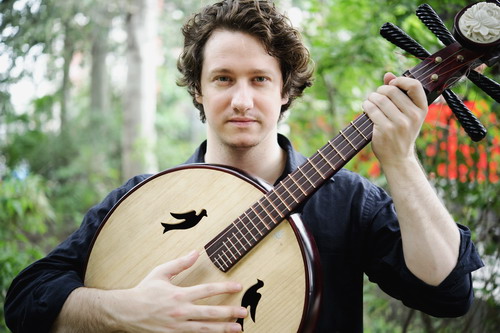
For our September Music Issue, we asked a selection of the city’s music experts for their take on the current state of the ‘scene’ here in the capital. Their insight was adroit, humorous and controversial in equal measure. In this blog series we post the interviews in full. Next up, Djang San of The Amazing Insurance Salesmen.
On the best acts of the last 12 months
In the last twelve month, I’ve seen quite a few bands here in Beijing. I know it’s not really new but I saw Metoo for the first time this year and thought it was quite interesting. I think Residence A is quite cool, too. I also saw the Hedgehog release party and it made me change my mind about this band, I used to think of it as not so interesting, now I think it’s good.
Also, Devils at the Crossroad are quite good, Nova Heart, WHAI, Not there, DWAAS, LIDONG.
On the development of the Beijing ‘scene’
I’ve seen more and more bands with foreigners in them, and also the growing influence of Eletcronic music in the Beijing Rock music scene with bands like Jungle Mico, Nova Heart and WHAI. Everything seems to have moved towards the Gulou area with bars like Temple, Modernista, Zajia Lab, XP, Tushuguan etc…
On the future of ‘the scene’
In order to grow, the Beijing music scene needs serious investors and people who want to promote this music more in Europe, Japan and the US, where the biggest markets for music are. The music also needs to reach larger media in China, otherwise it will stay underground forever, and maybe disappear completely.
On current trends
The hot genre of the moment is to mix all kinds of music and come up with your own sauce.
On how Beijing stands up to other musical cities
Other big music cities in the world have structured systems for music, which allows good bands to tour and play more. Also, there is a lack of good sound engineers and good equipment in general in the city, which sometimes can give you the wrong impression about the quality of the music.
One good thing about the music scene here is that you can experiment a lot with different styles of music, and play a lot too.
On the main obstacles for new bands
In Beijing, the audience tends to go see what is “trendy” and you often feel there is a lack of a solid fan base to work on. People in Beijing come and go – few people stay. You end up with lots of people in a room seeing a band not because it’s good, but because people told them it was “the thing to see”.
On current influences
Influences in Beijing can come from anything … I think that apart from music influences, there are influences that come more from the city itself. The whole mood of Beijing and the people’s feeling toward the city can change from one day to the next, and this feeling of uncertainty definitely has an influence on the music that people create here.
How can a new band get ahead in the industry here in Beijing?
I think each of us find our own ways of dealing with things here. It’s difficult to put your finger on what actually is “the industry”, basically, you have to find it out yourself.
On getting a foot in the door
The best way is to play good music, like everywhere else.
On who new bands need to know
Know yourself and the rest will follow.
————————————————————————————————————————————————————————————-
Time Out: June 2012:
http://www.timeoutbeijing.com/features/Music/15741/Small-talk-with-Zhang-Si%E2%80%99an.html
Small talk with Zhang Si’an
Posted: Jun 2012
Zhang Si’an on the cover of “The Beijinger” Magazine (July 2007):
—————————————————————————————————————————————————-
Cityweekend Beijing.
Global Times
—————————————————————————————————
Aujourd’hui la Chine
---------------------------------------------------------------------------------------------------
MAY 11, 20101
Square Peg Makes Own Hole: 10 Questions with The Incredible Zhang Si’an
By Beijing Daze in 10 Questions, Beijing 人, Tunes under the moon
I first came across the name Zhang Si’an ( Jean-Sébastien Héry) on a city weekend article that peaked my interest. It was penned by regular contributor, Gary Temple, who knows a thing or two about music in Beijing and he went all out with the praise. Moreover, it all sounded like honest heartfelt opinion, not some embellishment of the truth.

As I had the chance to find out for myself later from his performances andconversations we shared, Gary was spot on! Jean-Sébastien or Zhang Si’an is really a fascinating character with a unique and rare dedication to all things music. He plays performs under 3 different names on a regular basis but is associated to even more bands that that and has 4 records under his belt with more on the way.
He was kind enough to take some time this weekend and answer a few questions!
1- What’s going on in your world? This is your chance to plug your stuff:
I currently participate in different bands in Beijing including Zhang Si’an (folk), my oldest project (words in Chinese), The Amazing Insurance Salesmen (rock) (words in English), Qin Xuan (rock) (words in Chinese) (the owner of the what bar sings in there, but we don’t play a lot), The Maix Jazz band (Jazz) (words in English, but mostly jazz standards), The Incredible JSB (World music) (words in Chinese). I’m participating to the Ditan park festival, like i did last year.
2- How did you get into the China scene, singing in Chinese and playing Chinese folk?
It’s in the year 2000, when i first came to China, that i met with most folk and rock musicians of the time, including Wild Children, Second Hand Roses, Xiaohe,Buyi, Cold Blooded Animal, Xie Tian Xiao, Wang Juan, Wan Xiaoli…I got really interested by all that music and decided to write songs in Chinese. Back then, i was studying Chinese in France and was visiting Beijing for two months, i was doing rock in France (Bordeaux), was singing mostly in English, and had never thought music like that existed in China. That first trip to Beijing got me interested in exotic instruments, i bought a Zhongruan (kind of like a chinese banjo), a few flutes, some gongs, and when i came back to France that year i started to record with all those instruments i had bought, looking for ways to explore new sounds. I came back to Beijing for a year in 2001-2002, and played almost every wedneday at a bar called The River, which back then was one of the center of underground music in Beijing. I also started to listen to the Chinese classics of rock music such as Tang Chao, Heyong, Douwei, Zhang Chu, Cui Jian and got influenced by it.
3- What is it with you and adjectives? The Amazing this, the Incredible that…. do you like adjectives or just like long band names?
I think i just like long names that make no sense
.
4- You said last time that there would be an album soon for The Amazing Insurance Salesman… how is that going?
After looking for a studio to record us for a long time, we finally found the right people to help us do it. I hope we will have something finished around July. We are also looking for a music label to distribute the music in China, Europe, and the US.
5- Where’s the picture you’re using from? the one with the beautiful lady?
Actually i don’t know about that picture. I was looking for a funny way to represent insurances, so i typed “Insurance” in Google and found nothing. I typed “Car Insurance”, and found that picture.
6- I loved your little cooperation with MC Felix, Jidan Chaofan, how did that come about and do you ever play it live?
Thanks for liking “Jidan Chaofan”, i also helped for the music on the former video “Beijing”. The idea of those videos was to make something fun, and it was the first time for me to do rap music, so i got very interested in the project. We decided to create a band Da Bizi, and looked for musicians to help us make the project come true. Unfortunately my other projects were taking me too much time and i decided to let somebody else take my position in the band. We did play “Jidan Chaofan” once, during the Nanluoguxiang festival this year. To see the videos, click on the link below:http://so.tudou.com/isearch/MC%20Felix/
7- Word association: write the first word that comes to your mind.
* Beijing: Music
*Shanghai: Money
* Baijiu: Headache
* Dong Zi: Very good folk singer
* Nali: Very far from here
* Hutongs: Dilemma
* Polka dots: ?8- Your repertoire has songs in French, English and Chinese. Can you name 1 song in each language that is representative of Beijing for you and tell us why you chose it?
This is not an easy question….I can think of many songs and no songs at all. I have so many different feelings every day about Beijing that i don’t know what describes it best. Mainstream songs as well as underground songs all come to my mind at the same time. In Chinese, songs from Cui Jian like “Yi wu suo you” or “Yi kuai hong bu” that i sometimes sing,”Ni kuaile yu shi wo kuaile” by Wang Fei “Yueliang daibiao wo de xin” from Teresa Teng, any music from Dou Wei, a song called “One night in Beijing” as well, wich singer’s name i don’t remember.
In French, “La vie en rose” (Edith Piaf), “Des armes” (Noir désir), “Dans le port d’Amsterdam” (Jacques Brel), Minor Swing (Django Reinhardt).
In English, “Summertime” (Louis Armstrong), “Shine on you crazy diamond” (Pink Floyd), Paranoïd Androïd (Radiohead) and i guess many more songs….
9- You’ve been around for a few years around the music scene in Beijing/China. How has it changed since you arrived and what artists do you think deserve more recognition than they get?
I think what has changed is the interest of people from the outside to the Chinese music scene. When i first came here, nobody outside of China knew that there was a Chinese music underground, and there were not so many bands, famous or unfamous, coming to tour in China. The big difference now is that it’s becoming normal, as a western band, to tour in China, and so more and more musicians do it, sometimes as part of an Asian tour.
In the year 2000 was the first Midi festival, i saw the second one in 2001, and i saw it this year again, 10 years after. The number of bands has become much bigger, and the styles of music are now all represented, which was not the case before. In general, i consider that it still is too many people outside China who don’t know what’s going on in the music scene here. I also think the authorities should promote that music more, inside and outside the country.People who deserve more recognition ? As a whole, i’d say the Beijing music scene, in general, deserves more attention from music markets such as America, Japan, and Europe. For folk music, i’d say Dong Zi, Song Yu Zhe, Zhou Yun Peng, Li Dong, Mamuer. On the rock side, Wu and the side effects. On theJazz side, anything Pierre Brahin did and does, including his recordings with Chinese singer Xiaohui. On the electro side, i like what Sulumi does, but he apparently already has a lot of attention.
10 – On the “gourmandise” side of things, what are some of your favorite Chinese restaurants in Beijing?
There’s a very good vegetarian restaurant in a hutong near Dongzhimen Beixiaojie, i think it’s called Baihe.To me, it’s one of the best vegetarian restaurant in Beijing. In general i also like any Xinjiang food restaurants, and southern chinese food from yunnan (Zhong 8 lou in sanlitun) and Guizhou.
JSB is a great example of Beijing’s music talent and their willingness to just sit down with fans and other musicians alike around a meal or a drink and I’m extremely thankful for his time and the breadth of his answers! Quite a few names he dropped in terms of influences and songs that everyone should try an check out. It seems like a stretch being a Frenchman singing in Chinese.. kinda like a square peg in a round hole… but with what JSB is doing here, I’d say he’s more like a Square Peg that made his own hole…. a cozy one that is.
Ouzhou Bao
Second article in the “Global Times” (Feb 2011):
————————————————————————————————————————————
Article published in the “China Daily”, one of China’s most important newspaper in English (Sept 2010):
——————————————————————————————————————————————————————————————————
